Marquesas In the eye of the tiki
An epic arrival, wild boar hunting with the locals, the magic of the Marquesas and a surprise tsunami.
Land in sight!
I will never forget this moment: After 31 days on the Pacific Ocean, an island appears on the horizon. The sun is just rising and the wind is still blowing around our ears at over 20 knots. Clouds hang over the peaks bathed in orange light and the forest glows a damp, vibrant green. For so long, our days have been nothing but blue within blue.
The bay we have chosen lies in the shadow of the highest mountain on the island of Tahuata. Here lies the village of Hapatoni, known as the "friendliest village in the Marquesas", as we have learnt. The anchor drops and a dip in the cool water dispels any last doubts: we made it.
! Attention Attention !
This is an important announcement:
I hereby nominate the following sailing boats with the following brave crews:
SY Wishful Thinking
with Ryan and Emily
SY L'Egaloupio
with Krisztina and Bende
SV Tarpan
with Chris and Andrea
SY CERVINO
with David, Dan, Thierry and Mogli
officially to old shellbacks that have kissed the Pacific on the eye (shoutout to Dings and Bums 😘). We're popping the corks!!! 🥳🥳🥳
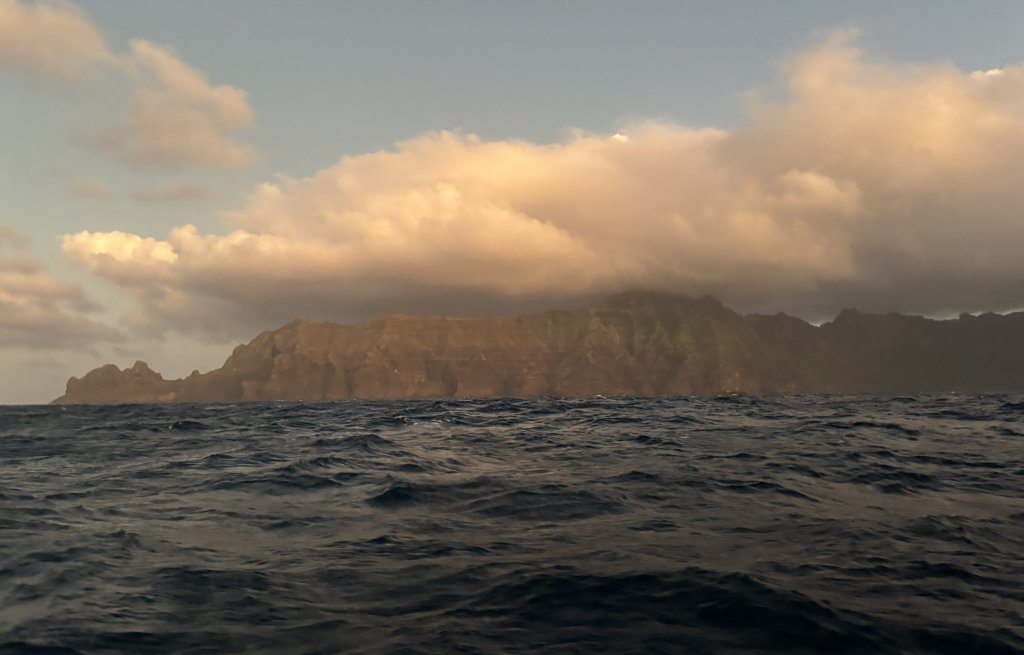
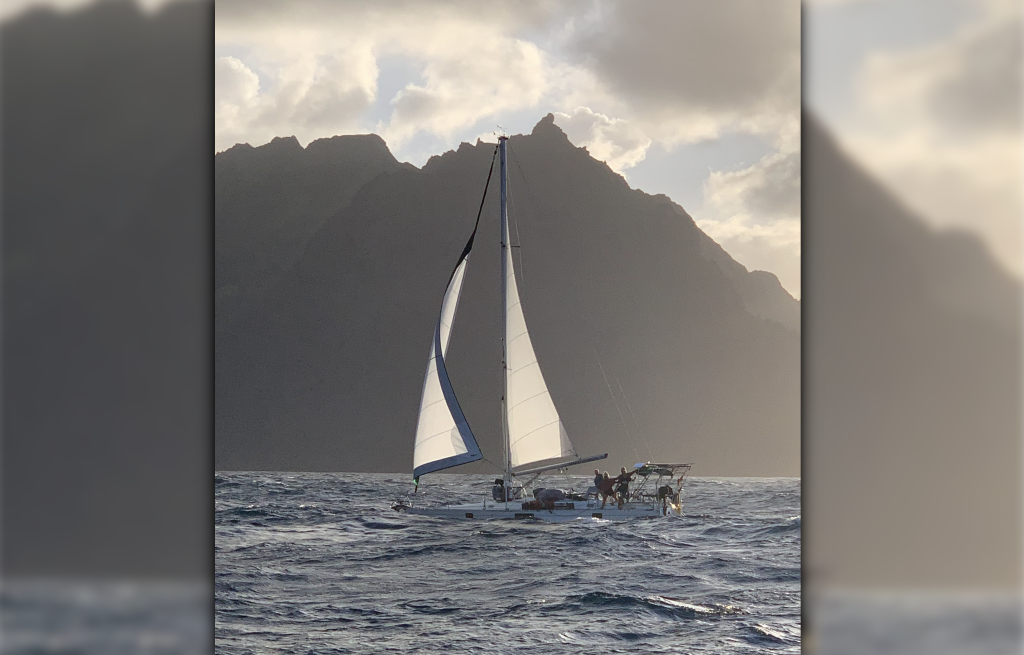
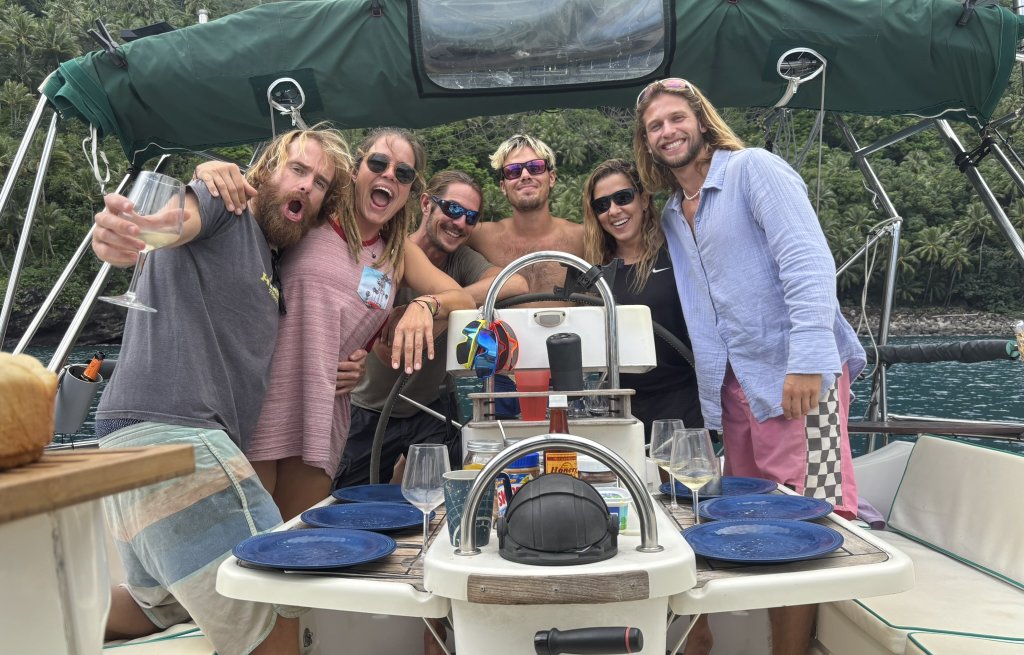
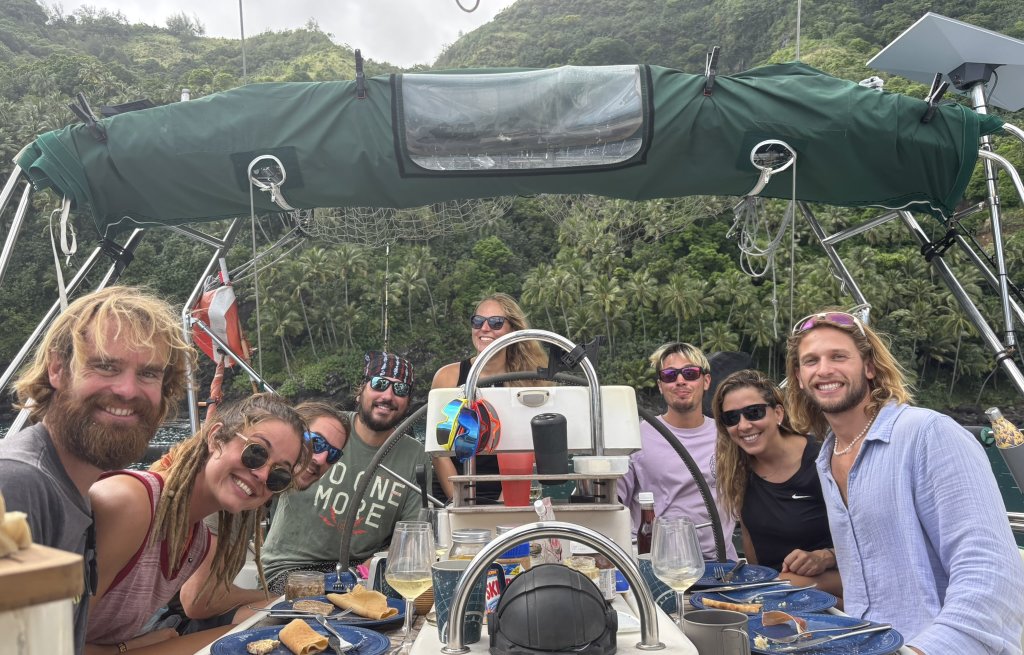
We take our first steps ashore. We leave our shoes in the dinghy. Nature is bursting with life here, flowers and fruit grow everywhere, everything is green and moist. The locals are playing "pétanque", also known as boccia, on the village square. They give us a friendly welcome and we immediately feel comfortable and at home. Practically all the inhabitants of this village earn their living by making sculptures. They make earrings, knives, necklaces and much more from wood and bone with marvellous precision. The "Tiki" figure is a recurring theme.
Who or what is "Tiki"?

We walk up a hill and are approached by a middle-aged man (about the same age as Thierry 😆). "Venez, venez (come, come)! Do you like starfruit? Take as many as you want!" he calls out to us and so, for the first time in my life, I pick star fruit from the tree. As if as a matter of course, the man invites us into his house. His name is Tafeta, his wife's name is Mo'e. He is also a "sculpteur" and proudly shows us his creations. Once again, the tiki figure is omnipresent. But what exactly is a tiki? "Tiki is not a god, but neither is he a man," explains Tafeta. According to legend, Tiki was the first being to colonise the Marquesas, coming from the east on a raft. He is the origin of the people, and his being still symbolises strength and protection today.
We spend wonderful days here, dolphins visit the bay almost every morning and we can snorkel with them. We are particularly pleased that we can still share all these experiences with our friends Dan & David and the other crews. Together we snorkel with a manta ray about six metres long and take a dive along the cliff edge. And then there's a very special land adventure:
It's off to the hunt!
Thierry, Dan & David and Andrea meet up with Tafeta and his dogs one morning at 4.00 am. Today they are going hunting. The goal: to kill a wild boar. They spend the whole day together in the bush, running, crawling and climbing through the rough terrain. I pick them up at the jetty at around 5.00 pm and listen to their story with great interest. There was no wild boar, but an exciting, exhausting but unique day and a goat as prey at the end.
The next day, all of us, including Kriszti and Bende, are invited to Tafeta and Mo'e for dinner. They cooked the goat in coconut milk in the traditional way and served it with breadfruit and rice. We brought lemon cake for dessert as a thank you. We ate, drank, sang and danced. Only when the sky is already black and Tafeta's tongue is a little heavy do we make our way back to our boats. Rarely have we experienced such hospitality from people we hardly know. The other inhabitants of the village were also extremely friendly to us, showering us with fruit and proudly showing us their art. Our first taste of the culture and nature of the people who populate the Marquesas.
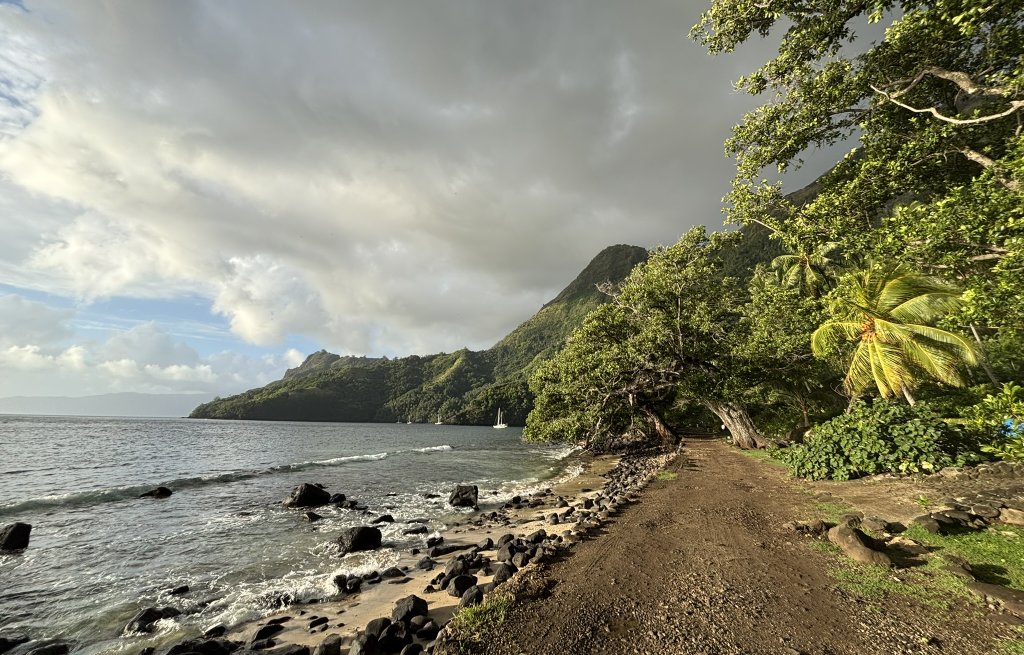
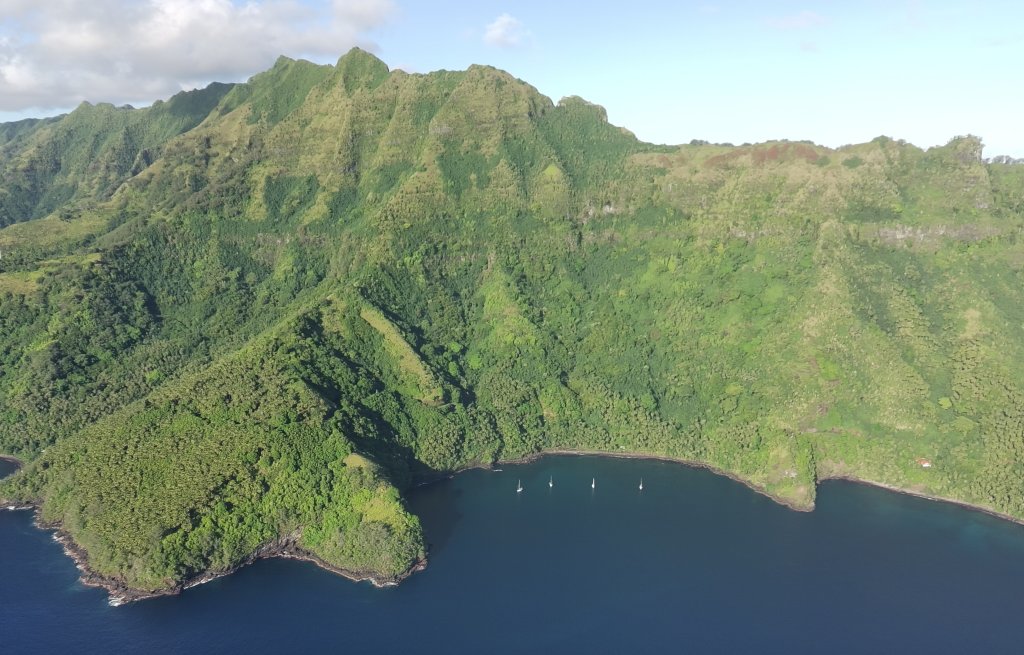
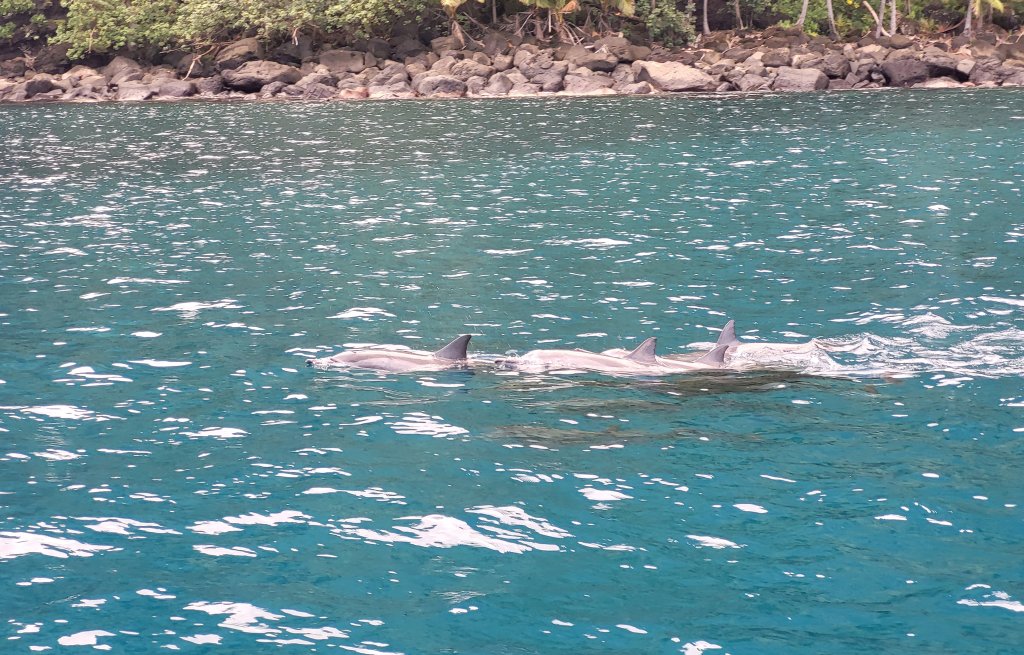
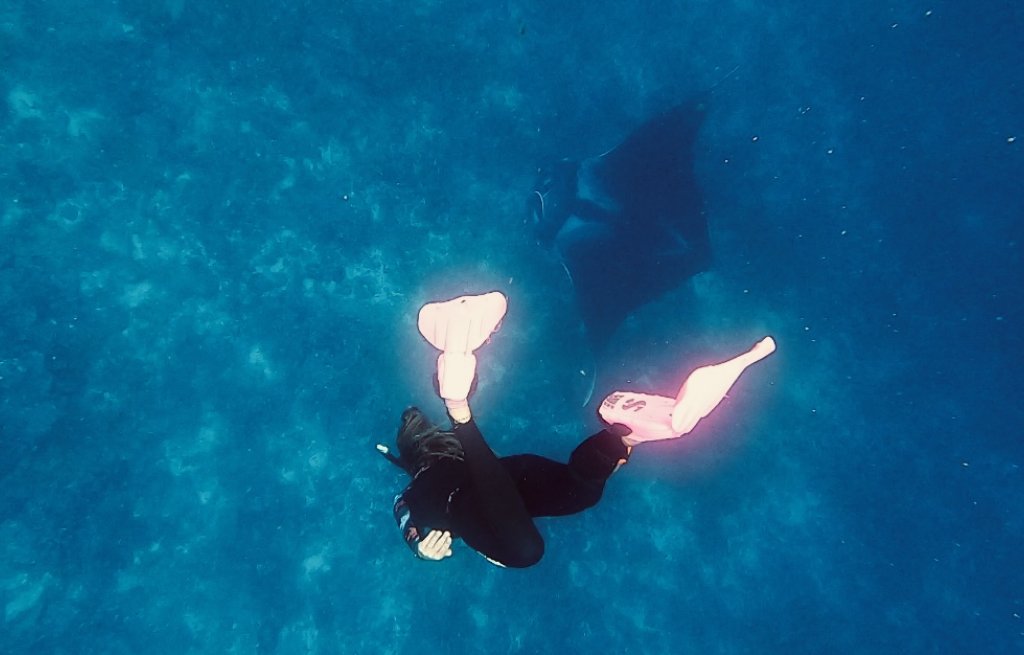
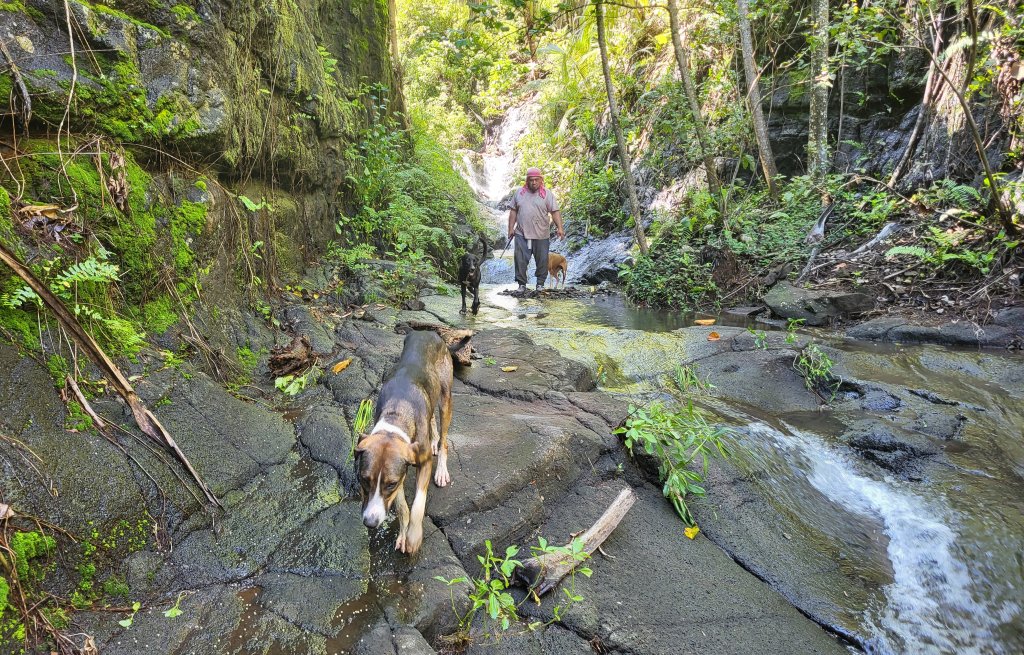
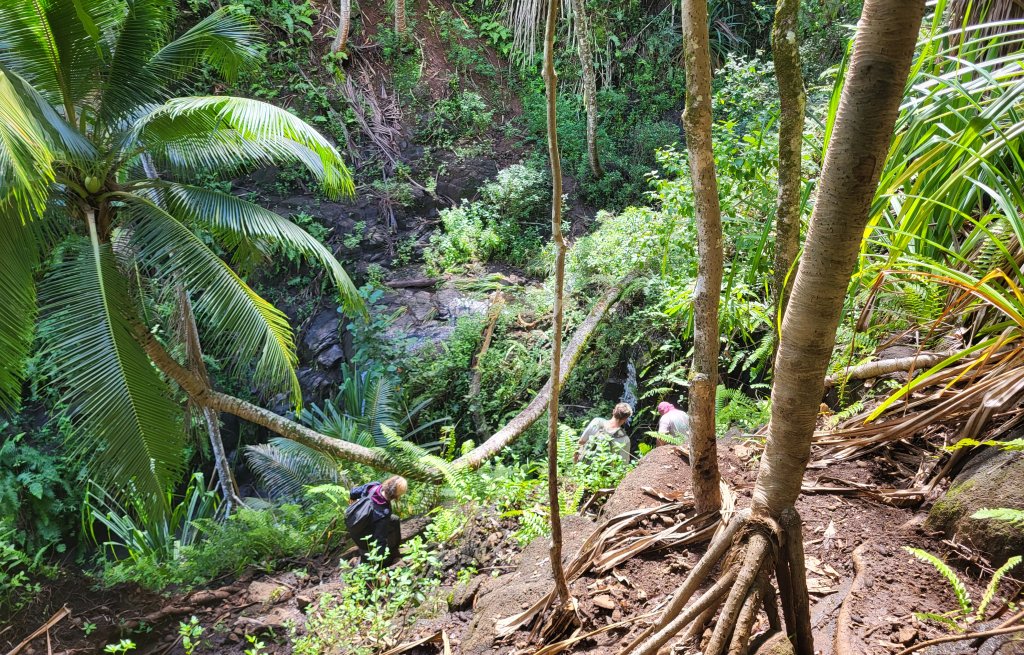
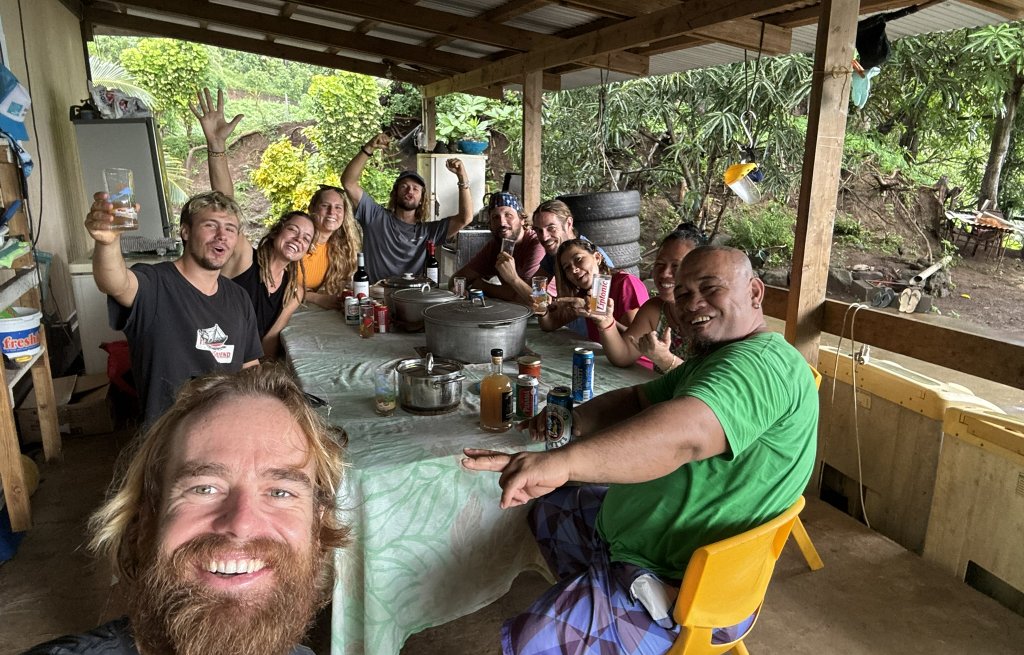
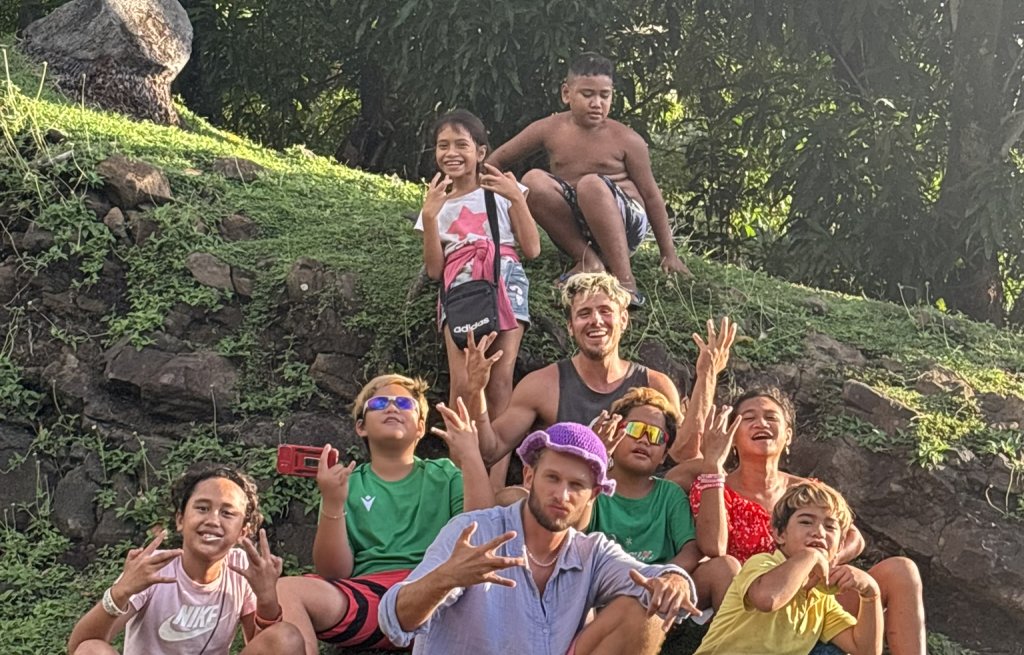
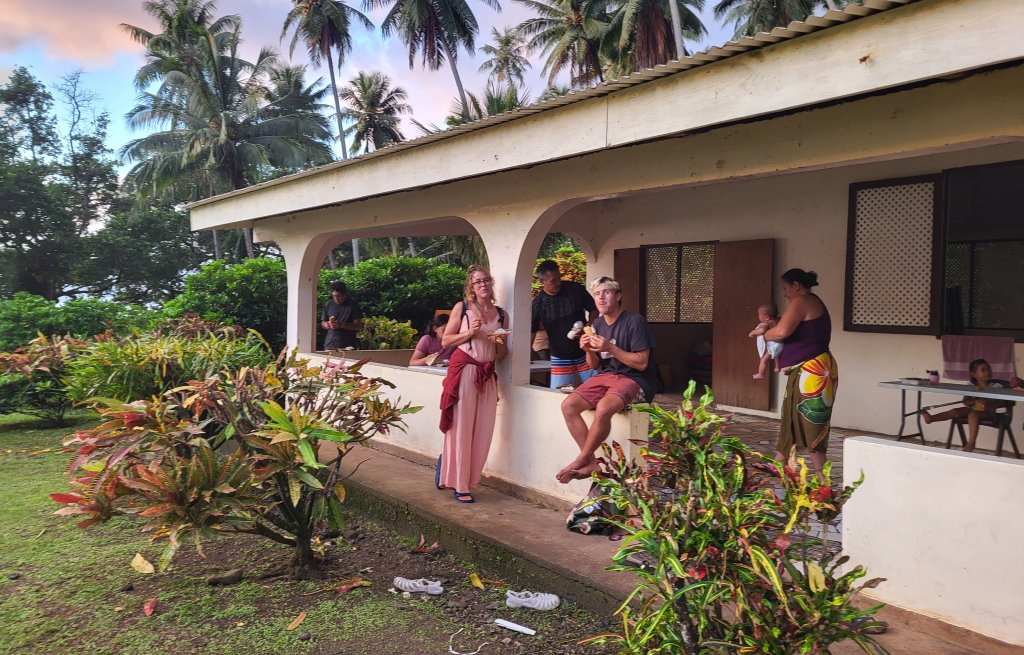
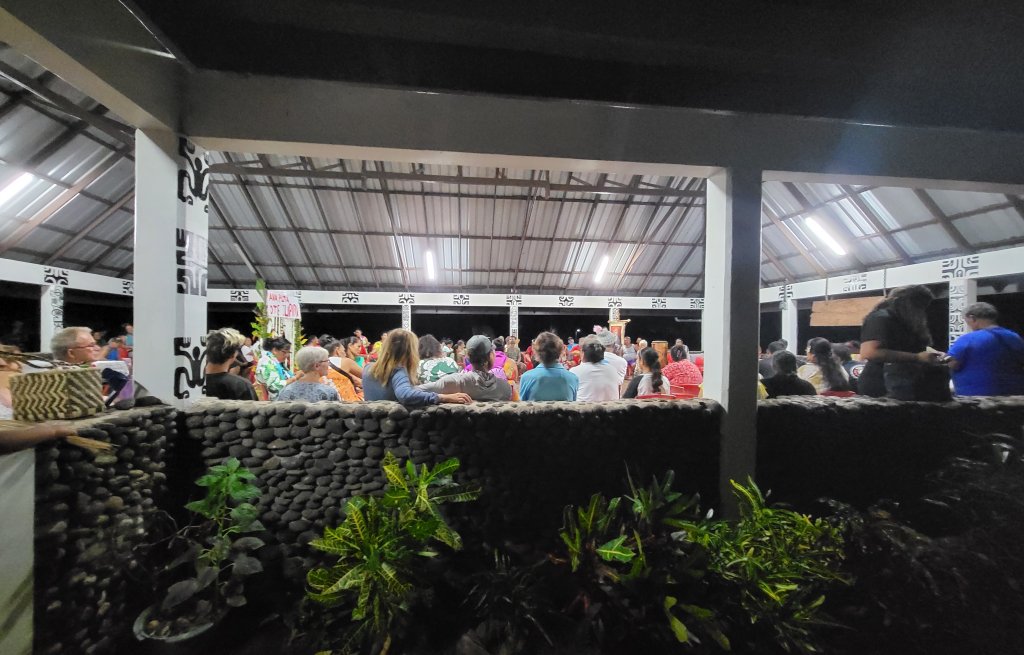
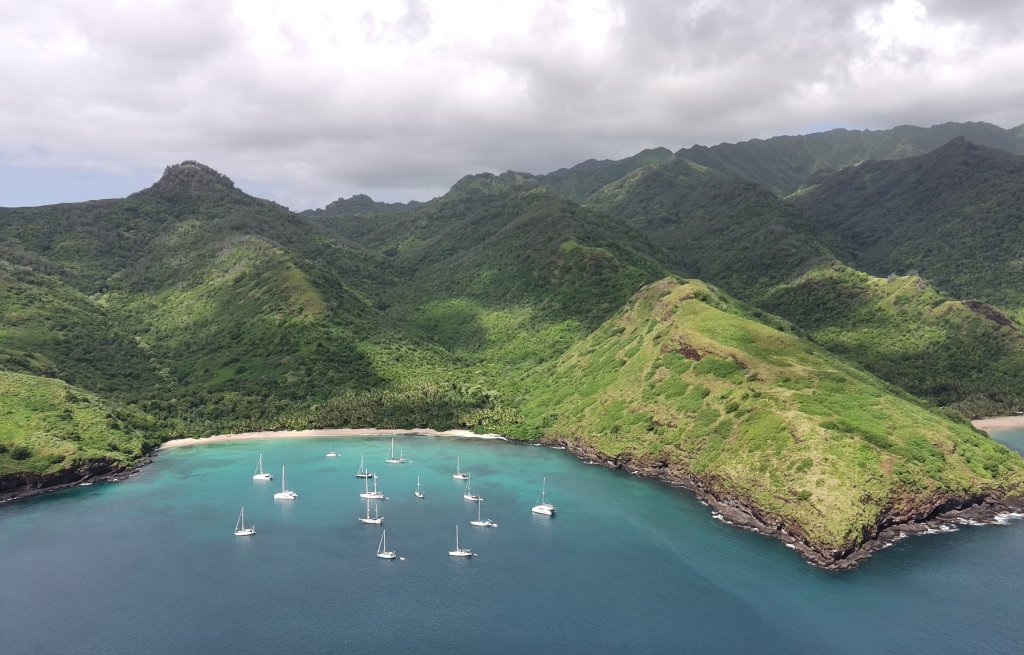
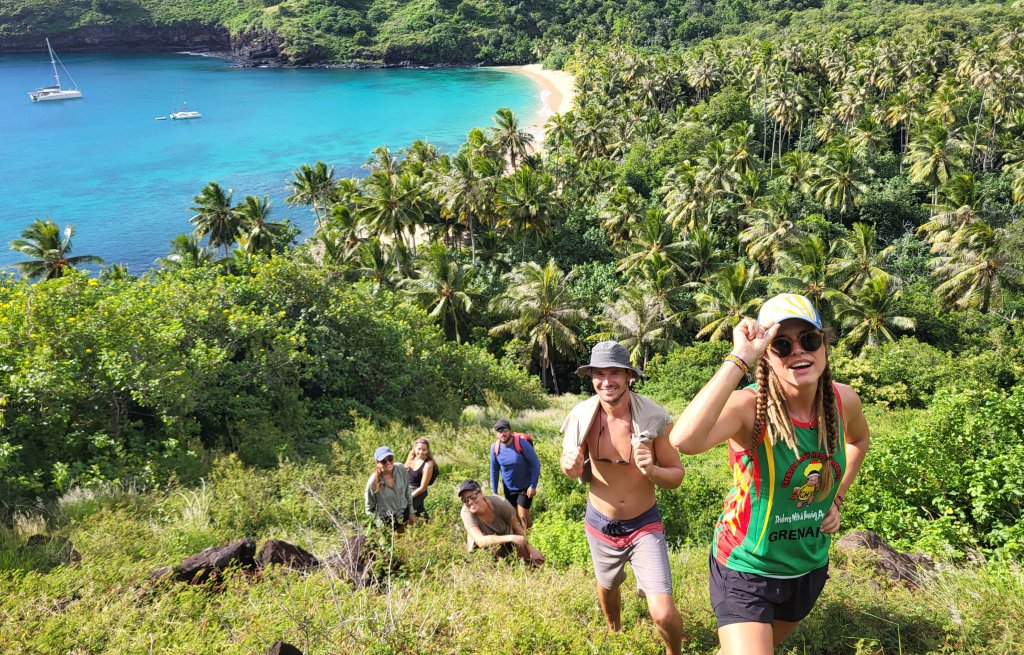
Hiva Oa - Fatu Hiva - and back
As in every country we arrive in, we have to clear ourselves and the boat in with the authorities. Customs and immigration, both of which can be found on the island of Hiva Oa, which we reach after about three hours sailing from Tahuata. Here we find an approximation of city life and are very happy about our first visit to a restaurant: the burger tastes delicious and it is a great feeling to be sitting in a restaurant again. The seclusion at sea means we enjoy moments like this much more than in our previous life. We complete the formalities, then make a detour to the small grocery shop in the village. THAT, my friends, is also a wonderful experience: never before have I been so happy about fresh salad, cheese and baguettes. We hire a car and spend a day driving around the island and are enchanted by its diversity.
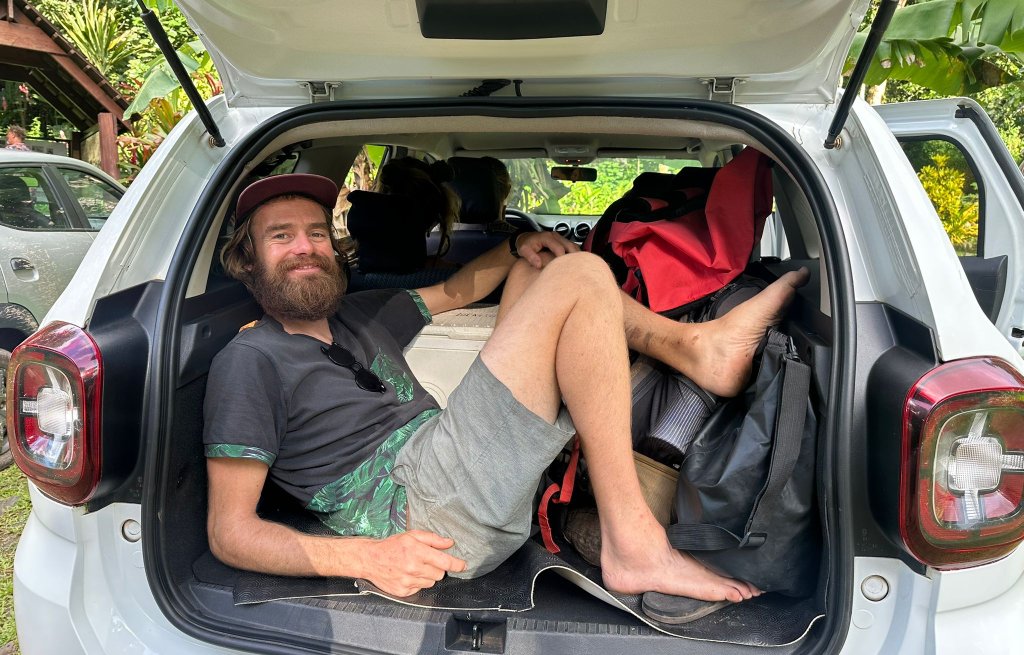
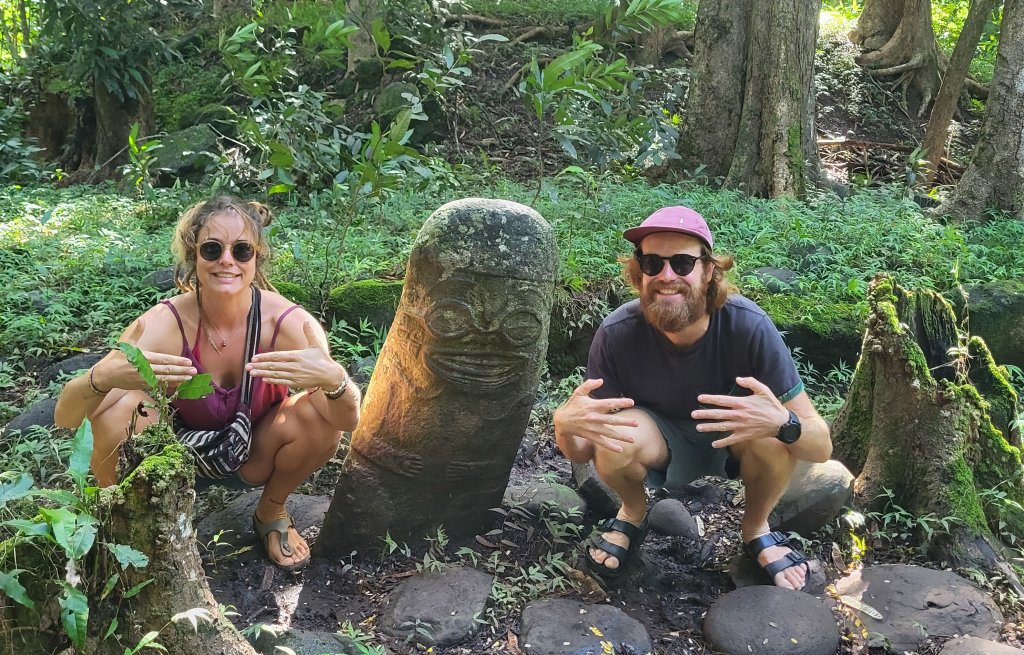
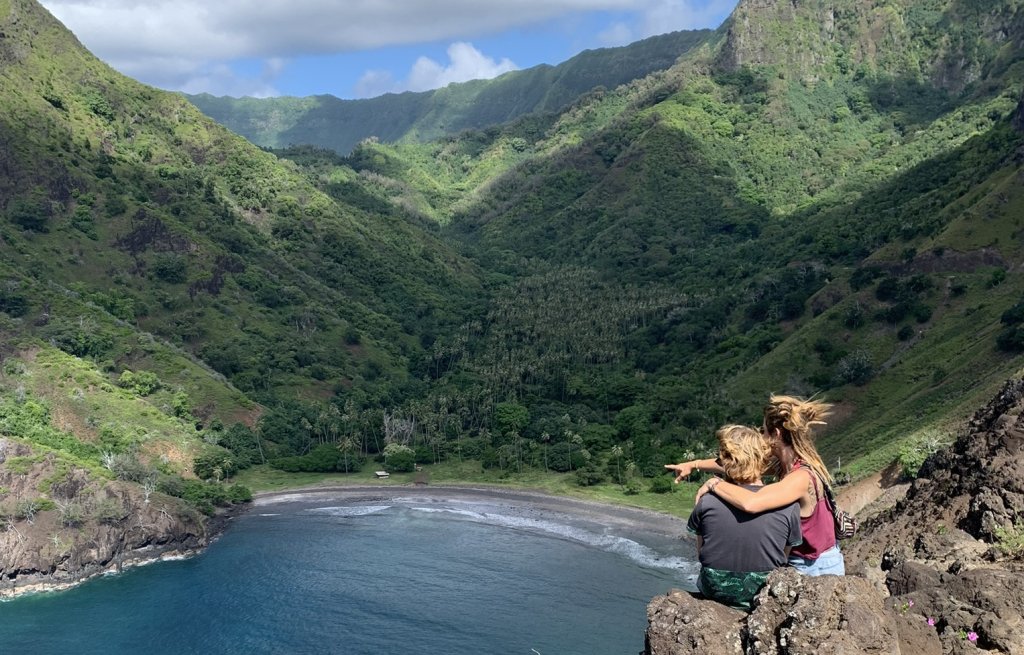
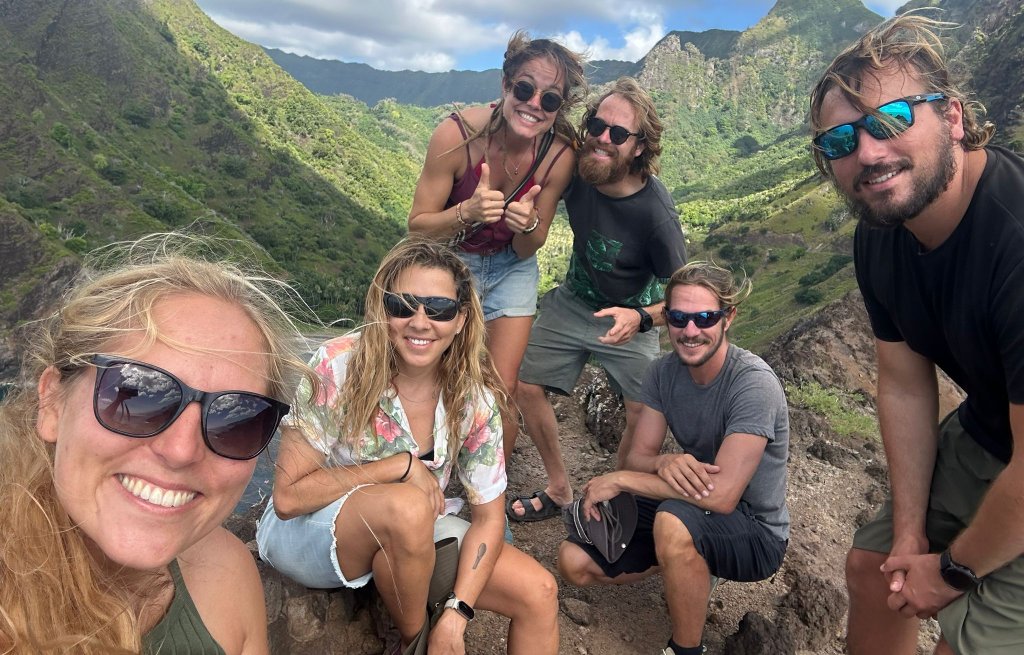

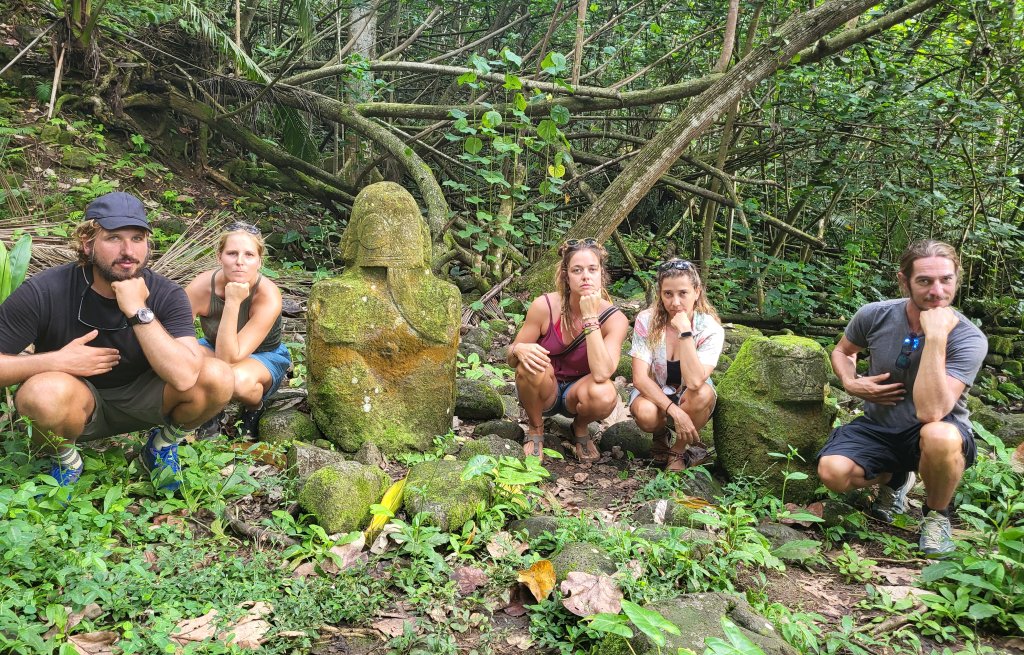
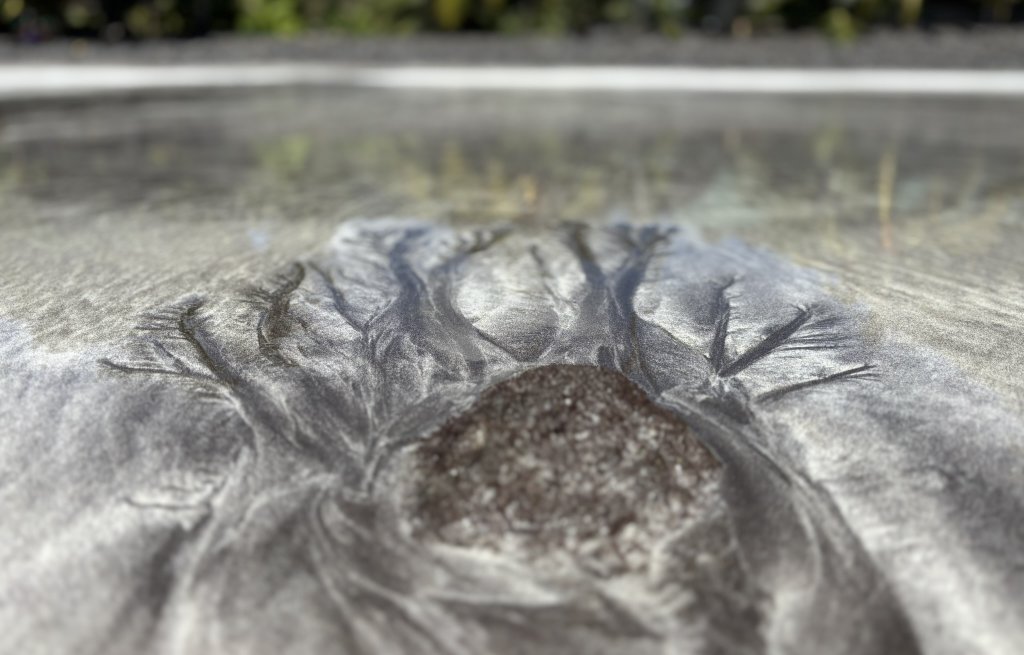
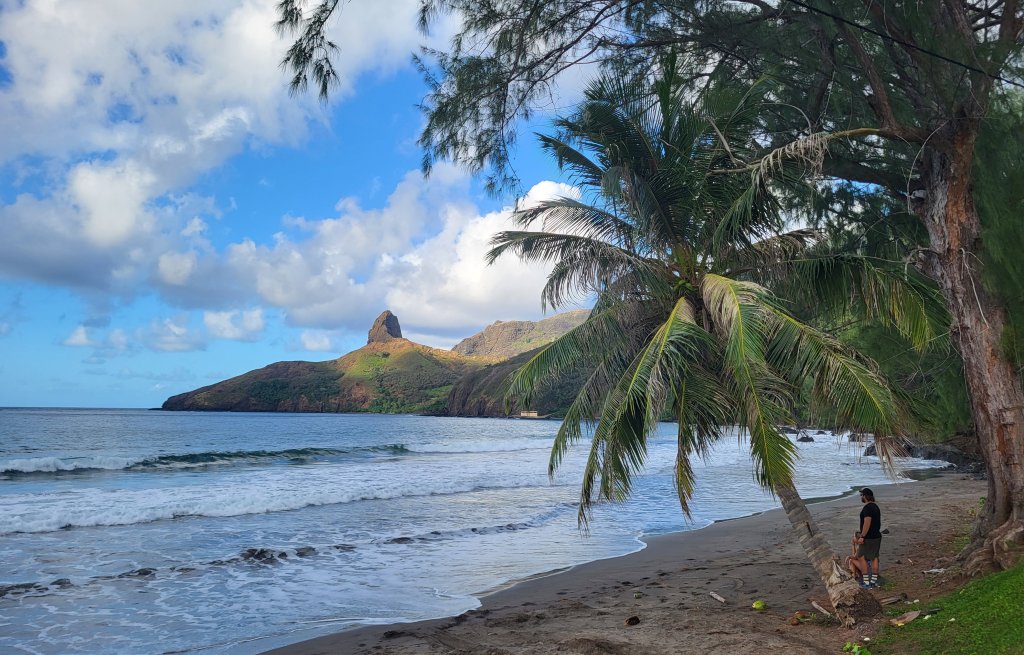
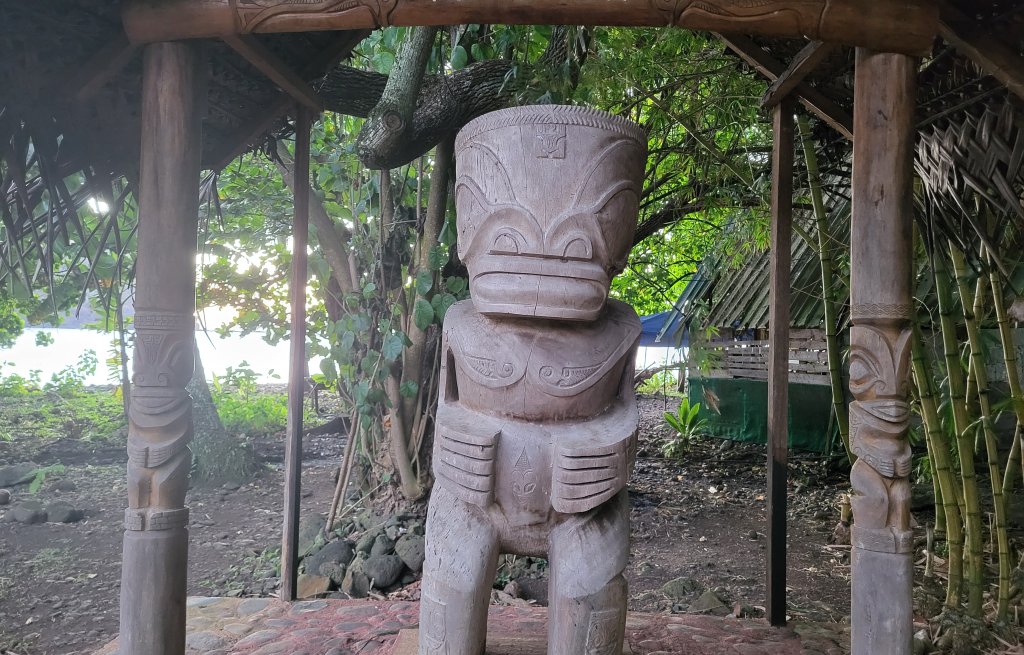
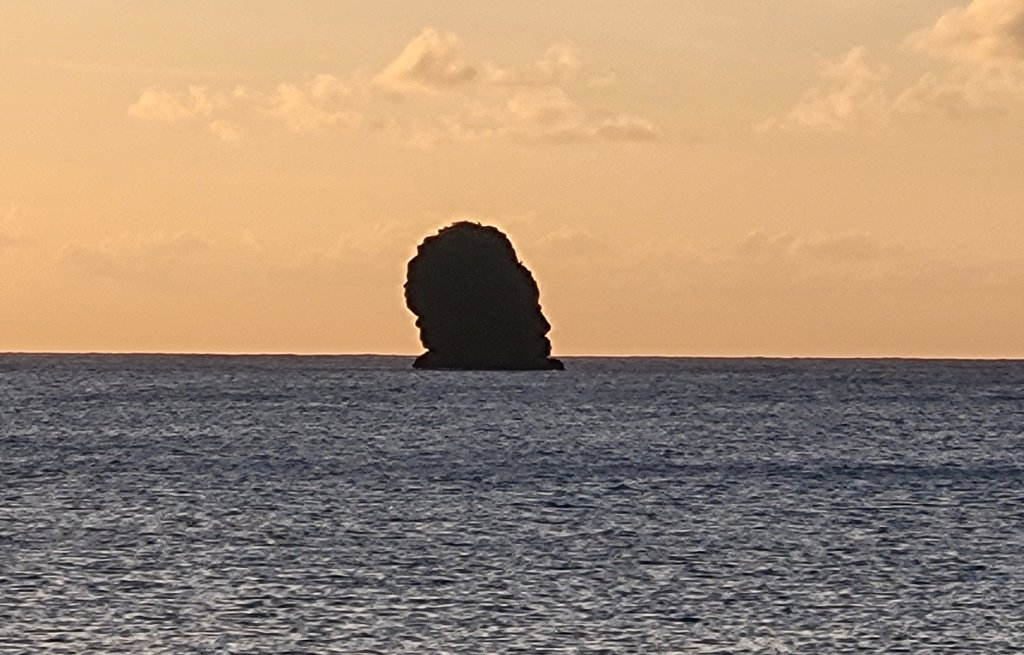
This is also the moment when our crew member Dan leaves us. He will fly from here to Tahiti to meet his girlfriend. Farewell Bums, you loyal, honourable sailor! Thank you for the great time with you on the CERVINO. And after a short four days, the rest of us will be heading back south to the very special island of Fatu Hiva.
In the footsteps of Thor Heyerdahl

We anchor in front of the village of Hanavave, surrounded by proud mountains and rock formations that are strongly reminiscent of the "moai" of Easter Island. The valley offers us an incredible view, probably one of the most beautiful anchorages of our trip so far. Together with our friends, we go on a guided tour of the island. Augustine and her husband, whose name I have unfortunately forgotten, tell us a lot about the island and its history. On a summit plateau, we stop at a sign next to which a path disappears into the bushes. "Thor Heyerdahl used this path," Augustine explains. It leads to a place in the north of the island where there used to be a village. This is where the Norwegian explorer Thor Heyerdahl lived with his wife Liv from 1937 to 1938, researching life in harmony with nature.
The idea of Thor Heyerdahl and his wife Liv was to study the culture of the indigenous people in harmony with nature. They lived and learnt to use nature under the watchful eyes of the natives. Through the transmission of the elders, Heyerdahl himself began to believe in the legends that the Marquesas were colonised not only from Asia, but also from the east, from South America.
Unfortunately, the experiment had to be ended after a year, as diseases such as malaria and a lack of medical treatment made it practically impossible to continue. Thor Heyerdahl will carry out an expedition 10 years later, sailing from Peru to the Raroia on a balsa wood raft. But more on that when we get there 😉
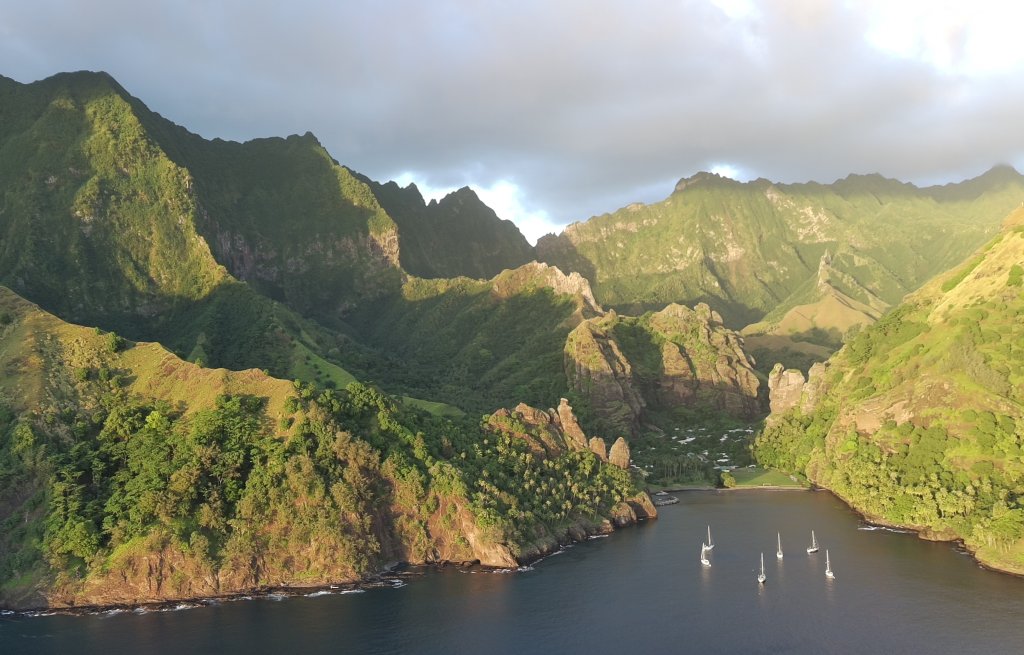
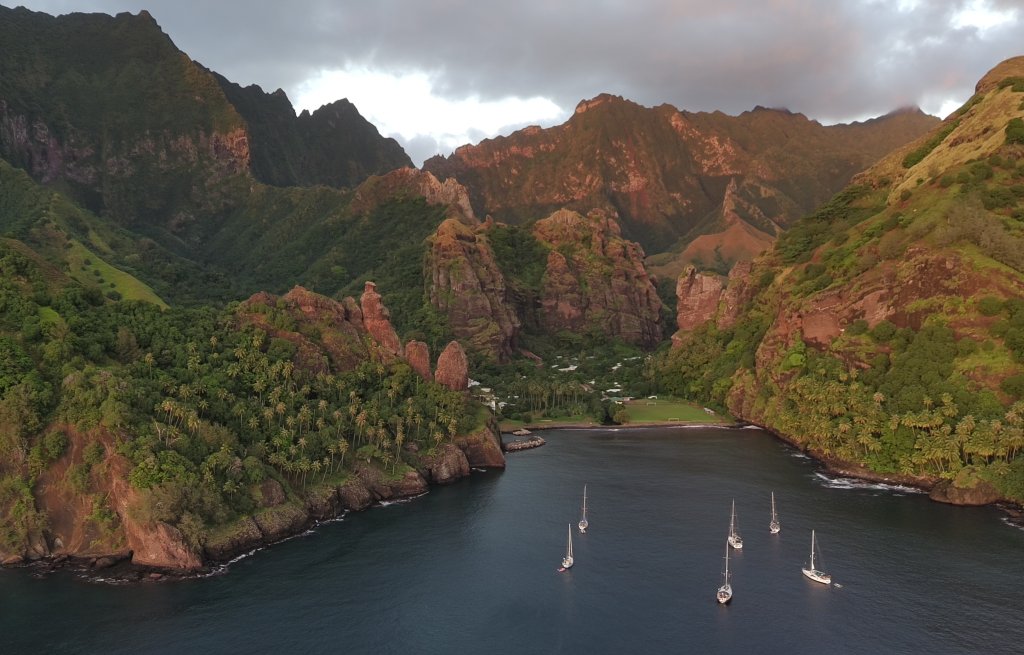
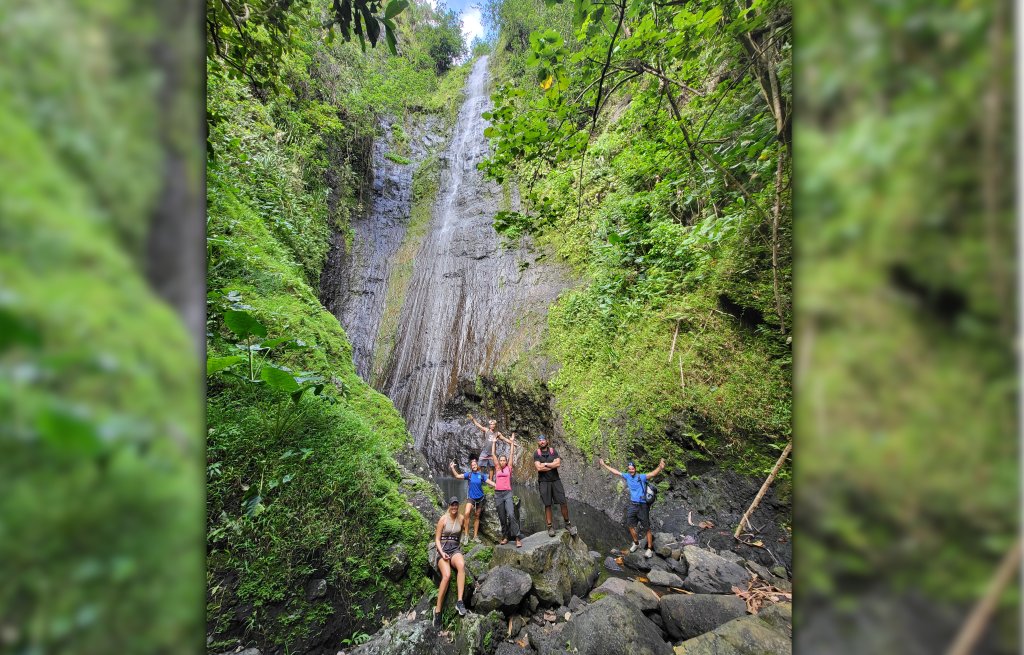
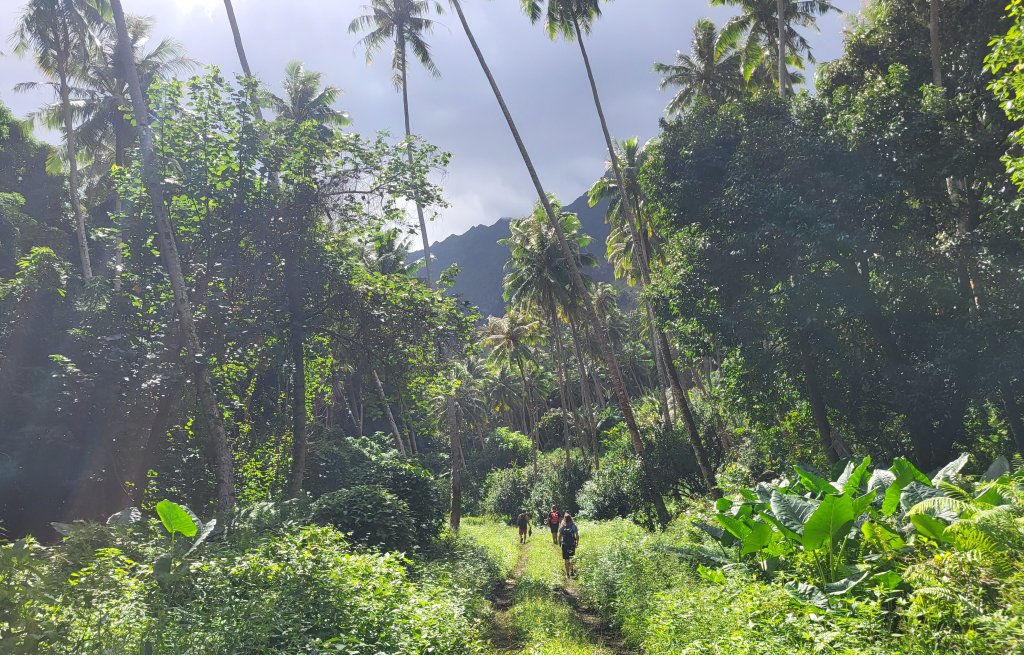
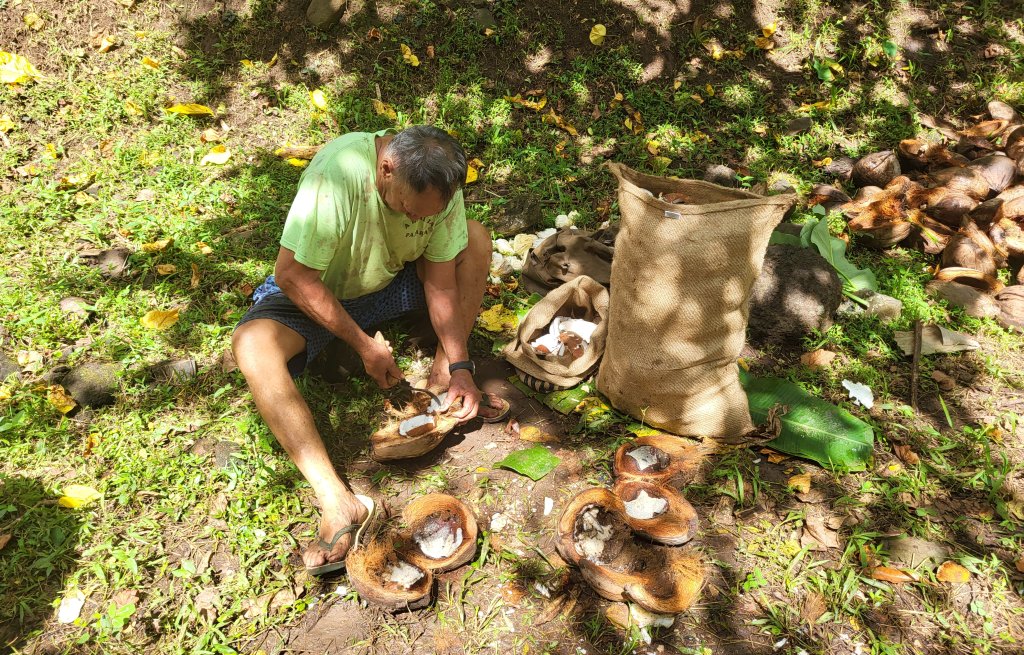
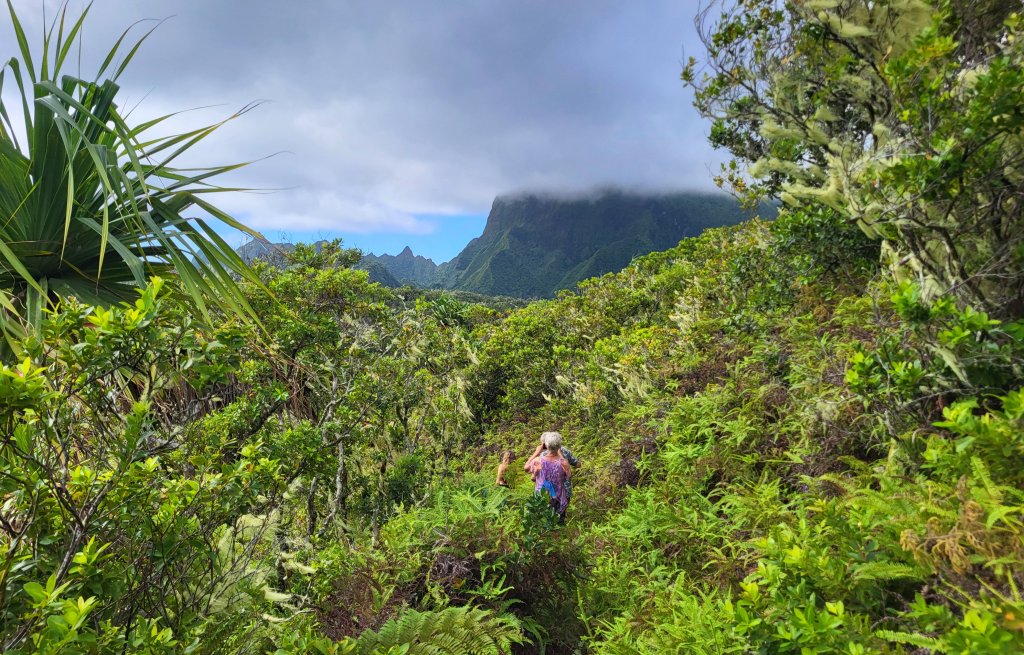
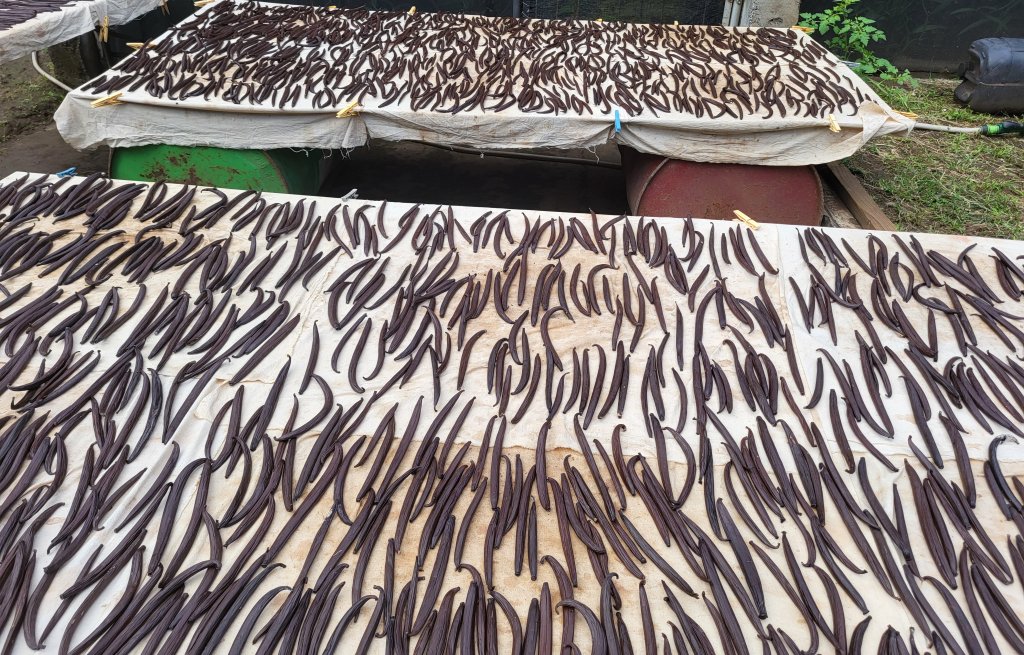
In the village, we meet Simon, his wife Sissi and their son Alain. They also make a living from the traditional craft of sculpture carving. But Simon shows us something else: beautiful ukuleles, made from different types of wood and decorated with beautiful carvings and symbols. Typical of the Marquesan ukulele are the eight strings as opposed to the classic four. Naturally, my musician's heart beats faster and I buy one from him. Together with the other sailors in the bay, we spend an evening with the family and have a cookout: "Four Marquisias", so to speak, a hole in the ground in which baskets of meat, breadfruit and the like are cooked for hours on coals and covered airtight with banana leaves and earth. This is served with "Poisson Cru", one of the traditional dishes throughout French Polynesia: raw tuna, not from the chiller cabinet but freshly caught, in coconut milk, not from a tin but homemade and fresh! Served with a little lemon, a hit! 😍
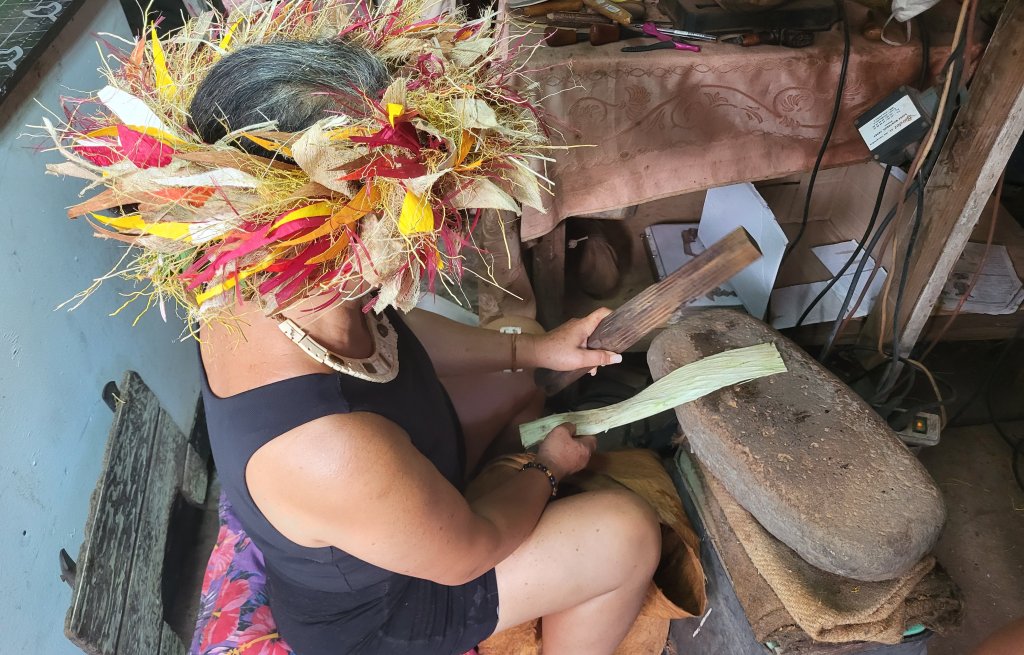
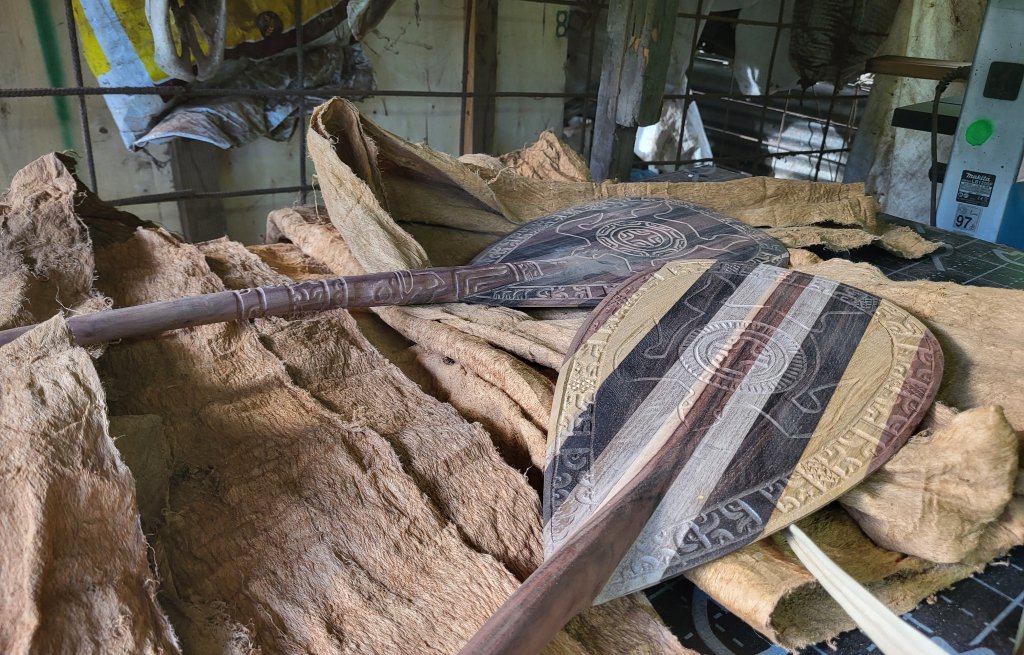
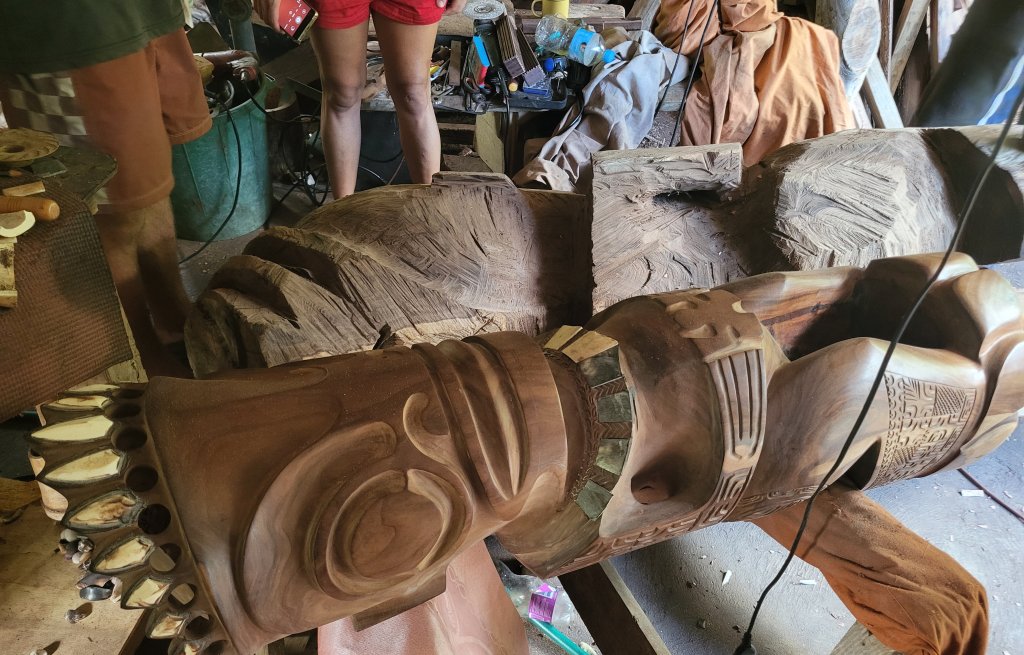
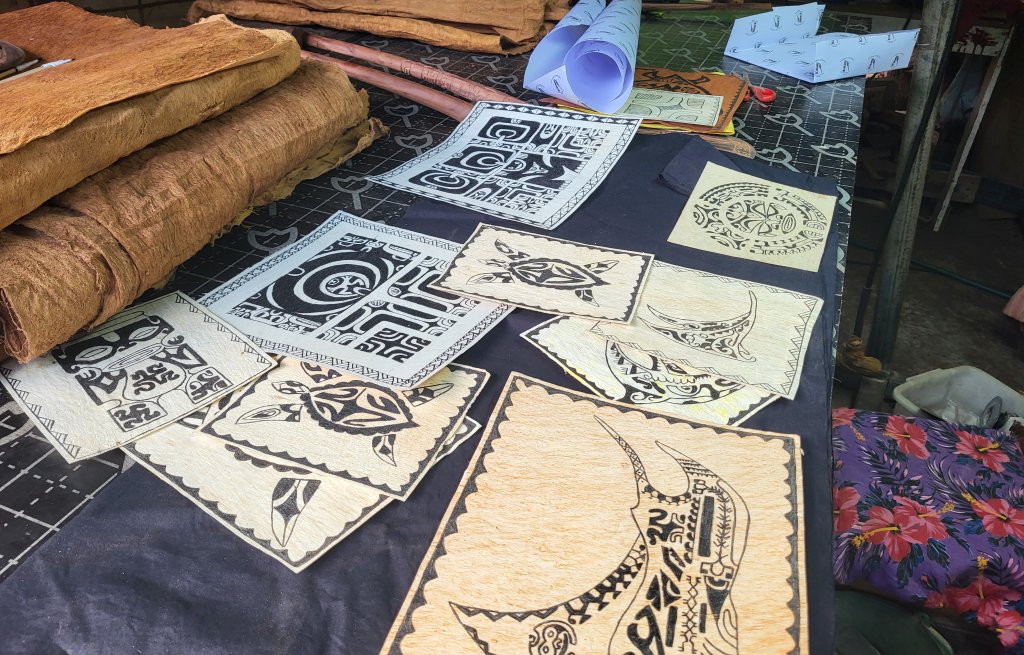
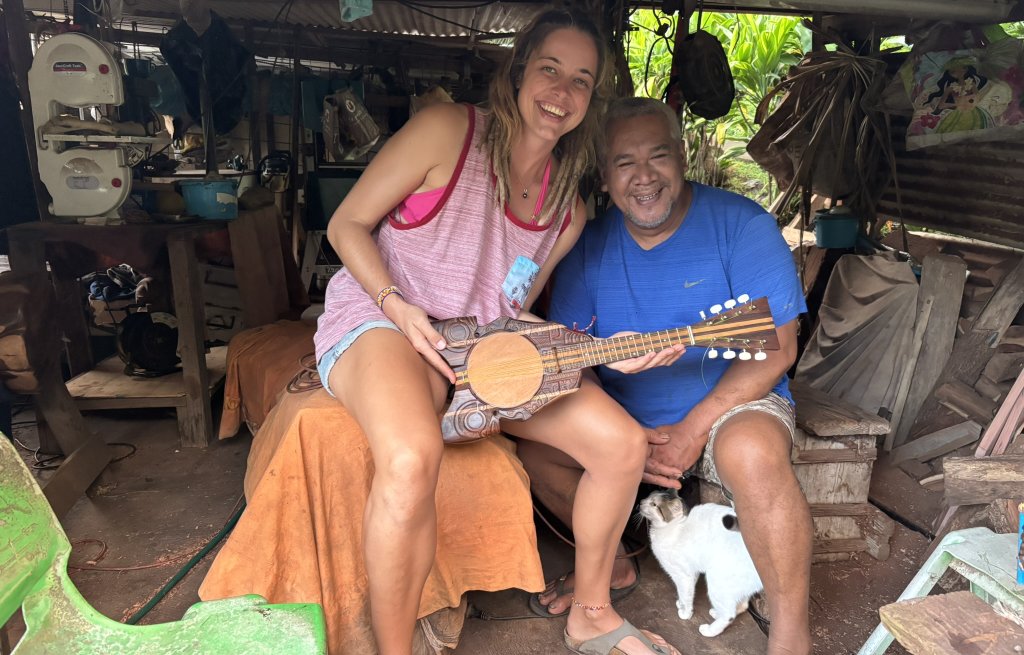
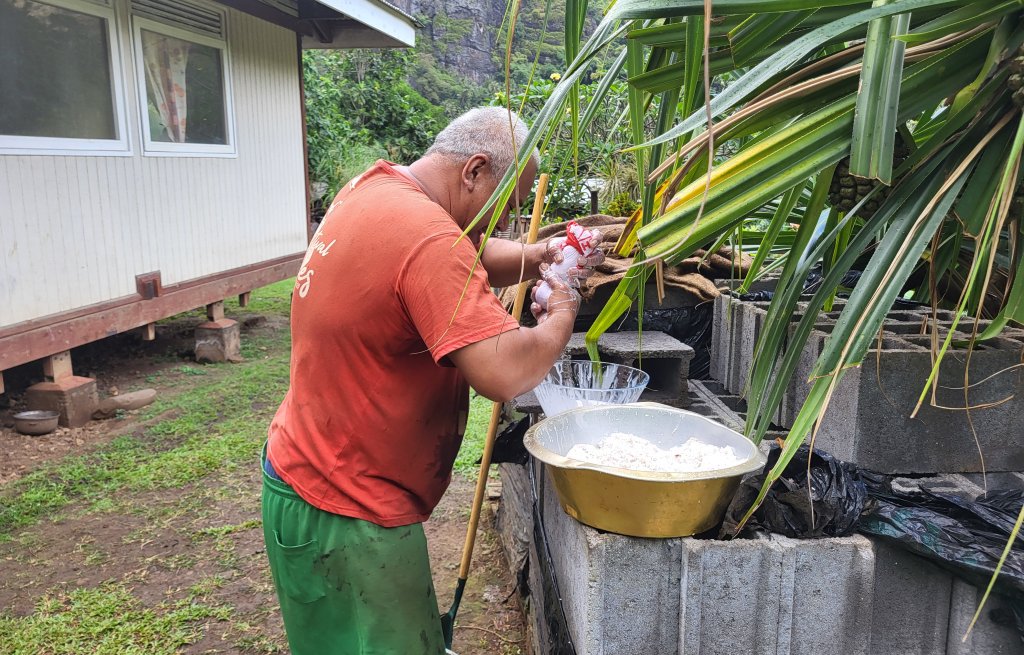
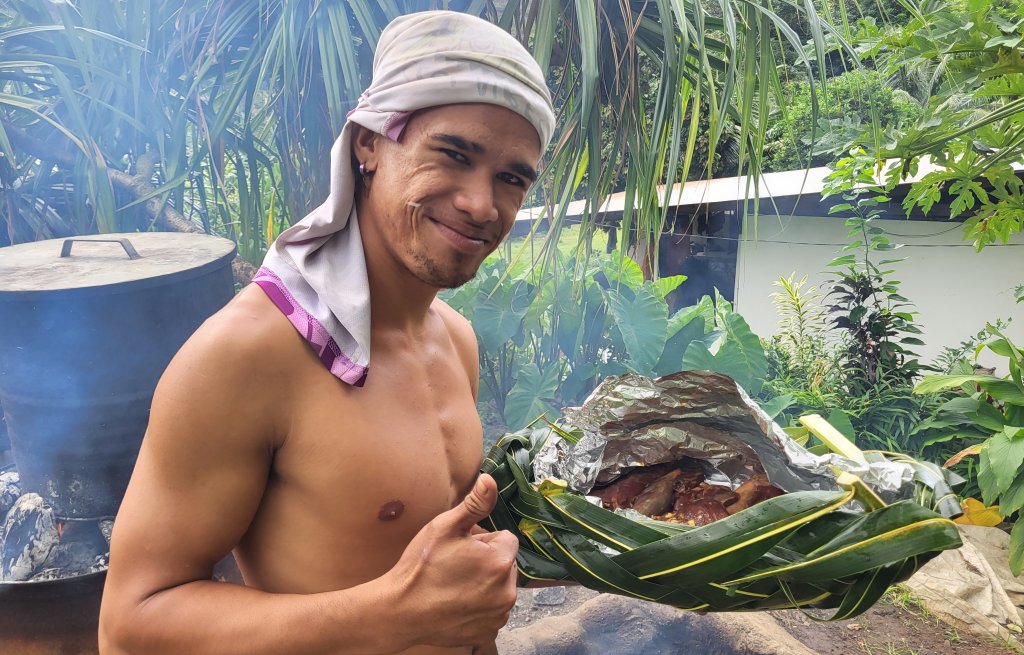
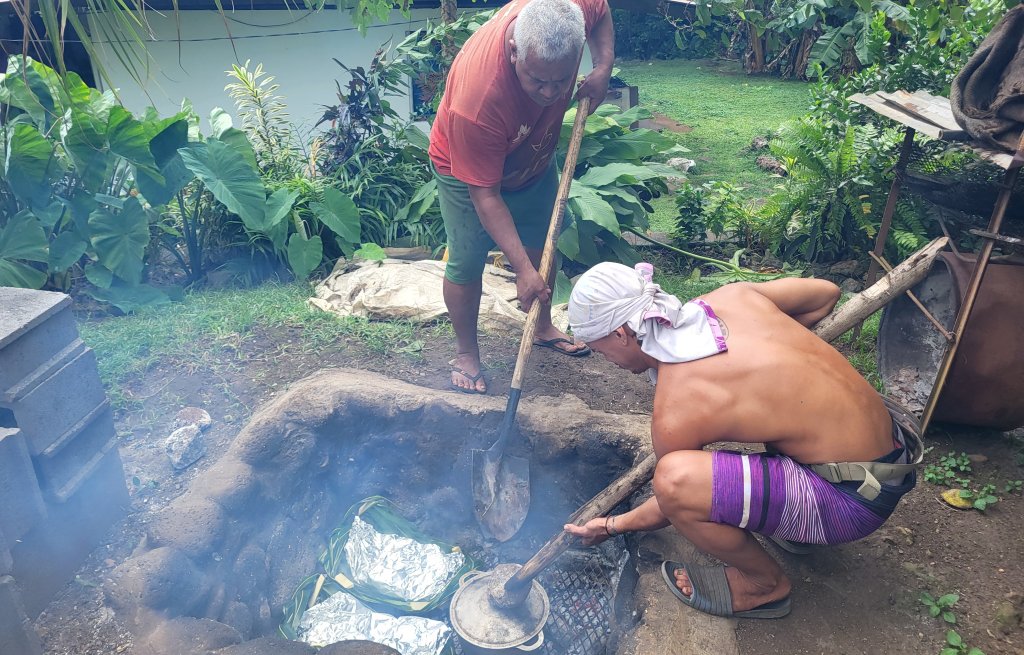
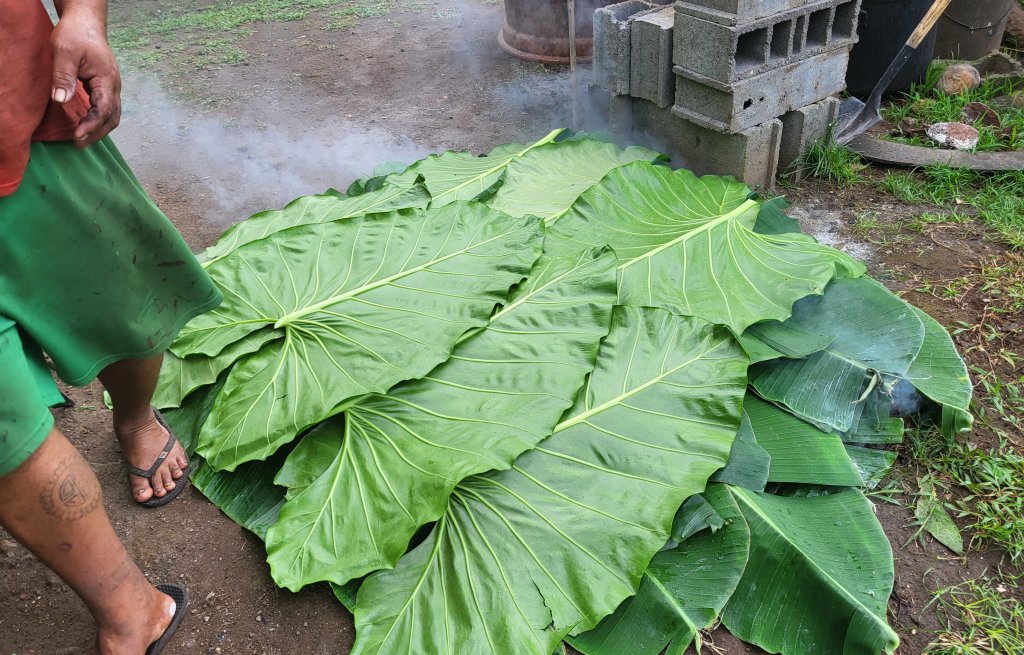
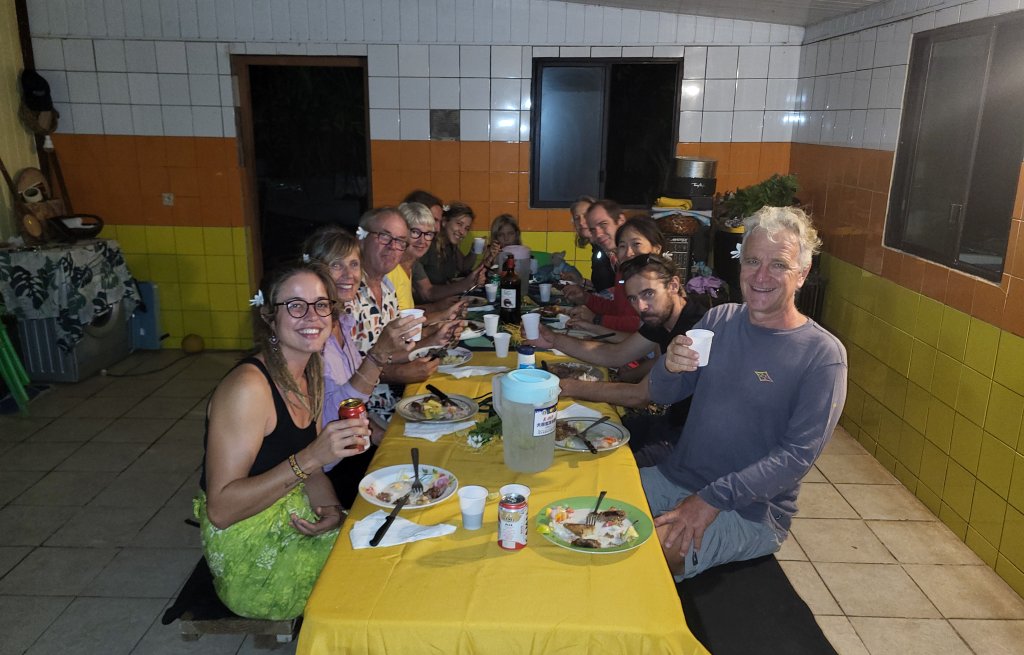
After a great time together, we now have to say goodbye to the other two sailing boats, Tarpan and L'Egaloupio. Our second crew member Dings aka David is also leaving us here. However, it is nice to know that he is travelling on in good hands, as he is accompanying Krisztina and Bende to the Tuamotus. Thank you David for everything, it was great to have you with us and see you next time! 😘 We also bid farewell to the others with tears in our eyes, as deep friendships can develop in a short space of time. After all, our journey across the Pacific connects us.
Our stay in Fatu Hiva is coming to an end, because slowly the Pfilcht is calling. Our diesel tank is still clogged and we want to tackle this in Hiva Oa. Before we leave, however, we witness traditional dances and songs with homemade costumes made from leaves and flowers. It is clear to see that these people still have a deep connection to nature and we also feel a special energy. We leave the island, once again packed full of papayas, bananas and mangoes that the generous locals have given us.
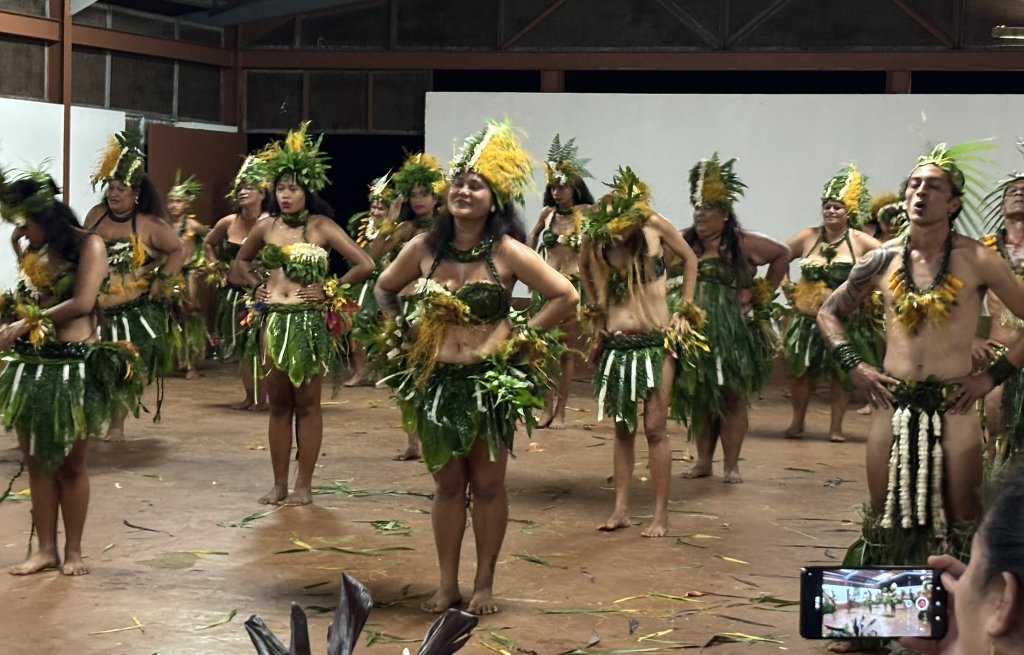
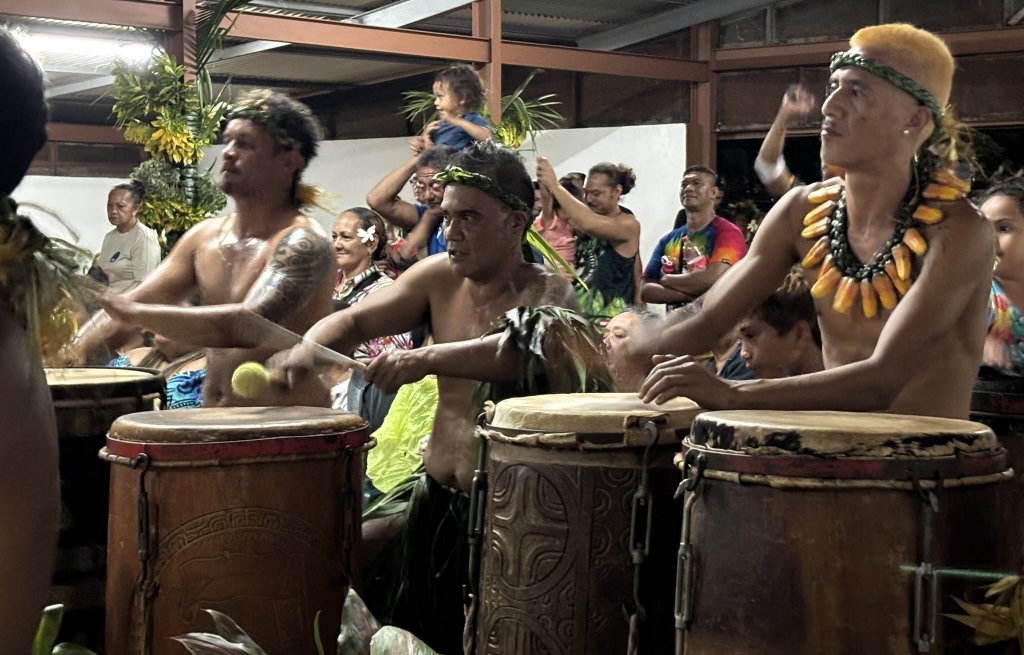
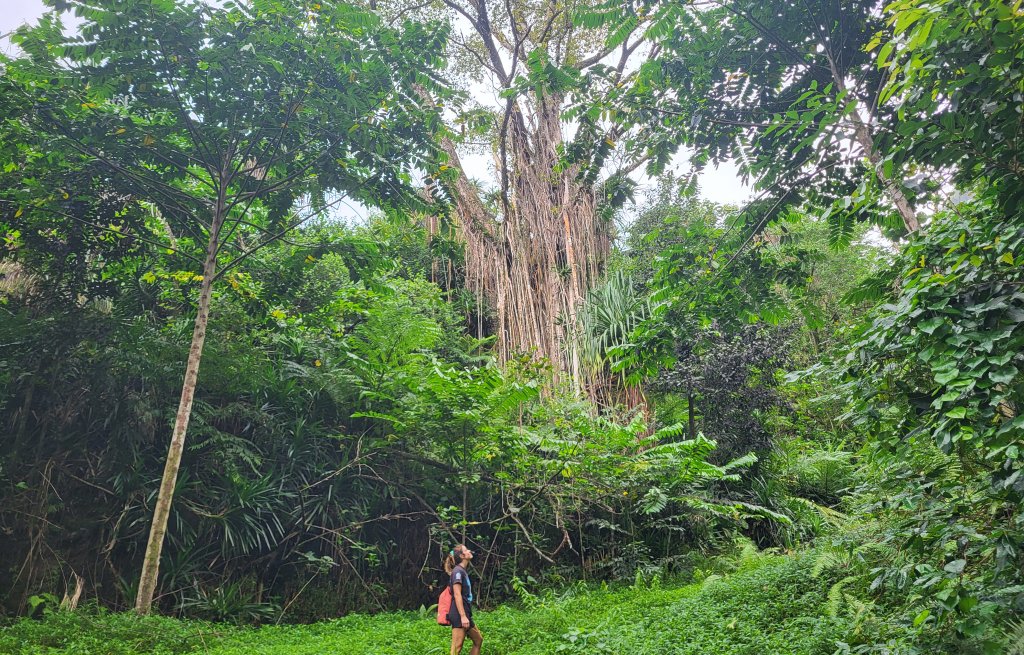
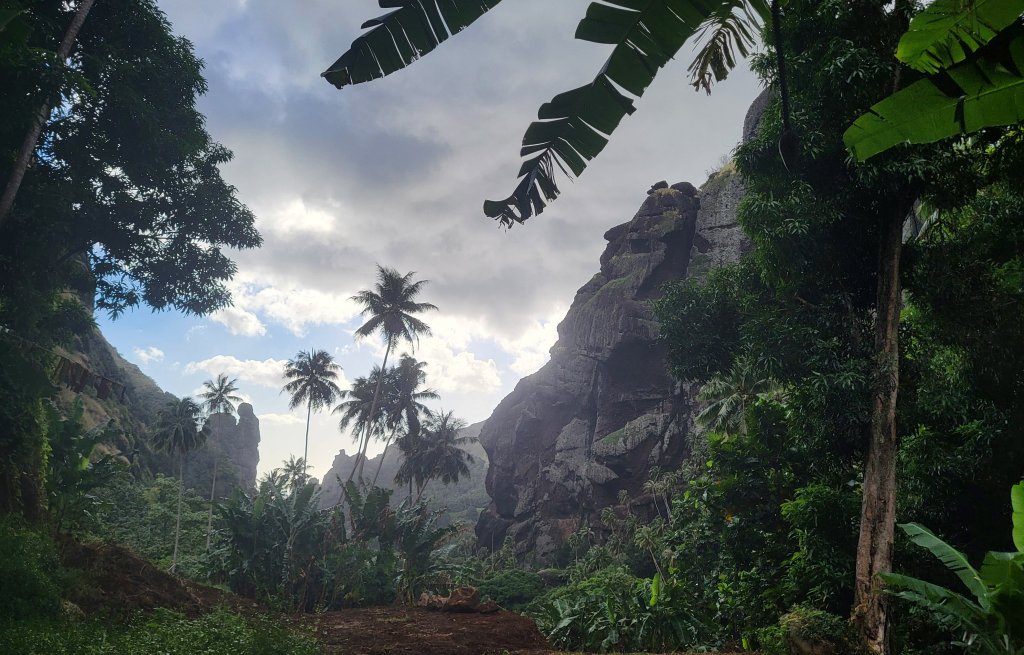
Sudden tsunami warning
We spend four days pumping out our diesel tank, cleaning it and installing an inspection hatch. We get the tools and expert support from our new friends Martina and Peter. After a lot of smelly diesel mess, we are very happy with the result and our big car is purring like a kitten again.
Now we want to leave the south and visit the three northern islands of the Marquesas. Our next stop will be "Ua Huka". Before that, however, we will stop in a bay in the north of Hiva Oa. From here, the crossing should be possible within 12 hours so that we can arrive there in daylight. Anchoring in the dark in a bay that you don't know is always a bit daft. So we anchor in this beautiful bay, Thierry goes for a walk on land and I read. Suddenly my phone rings, it's Thierry. "Can you pick me up? A couple of locals have given me some fruit, I can't carry it on my own". The classic. So I take the dinghy ashore and we walk together to the house of our new acquaintances. "Have you heard about the tsunami?" one of the men calls out to us from afar.
Apparently there has been a strong earthquake near Alaska, the tsunami wave of which is supposed to hit the island. We think for a moment. We received our first tsunami warning in San Blas, Panama, so the shock is no longer quite so great. A boat out in deep water is also pretty much the safest place to be in such a situation. So we decide to sleep for a few more hours and then sail to Ua Huka overnight instead of tomorrow morning as planned. So we leave the anchorage at around 10 o'clock at night, eager to see what awaits us out there.
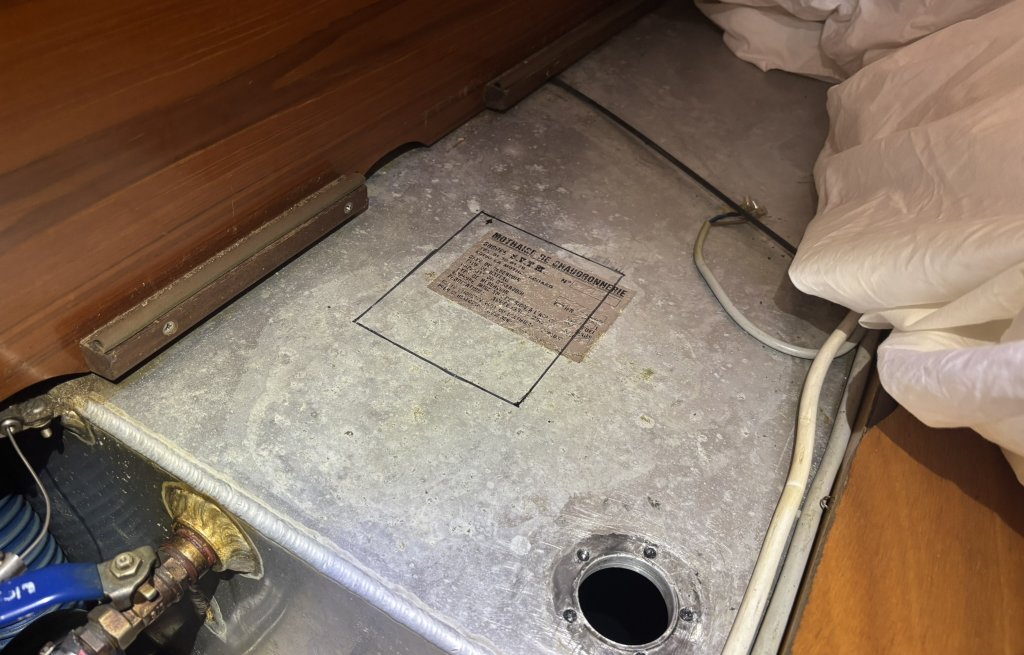
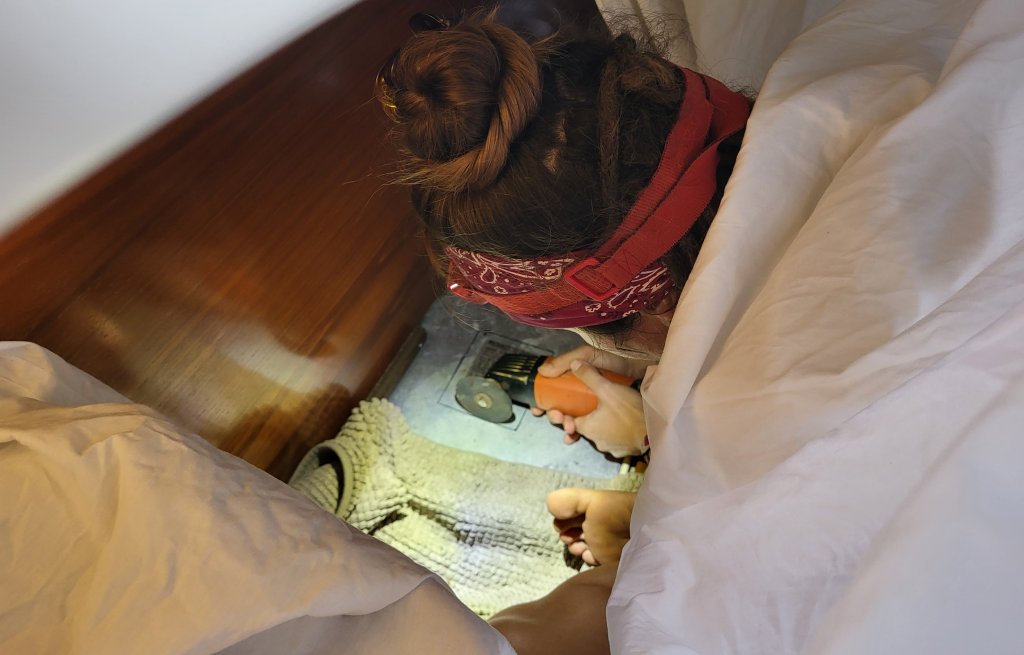
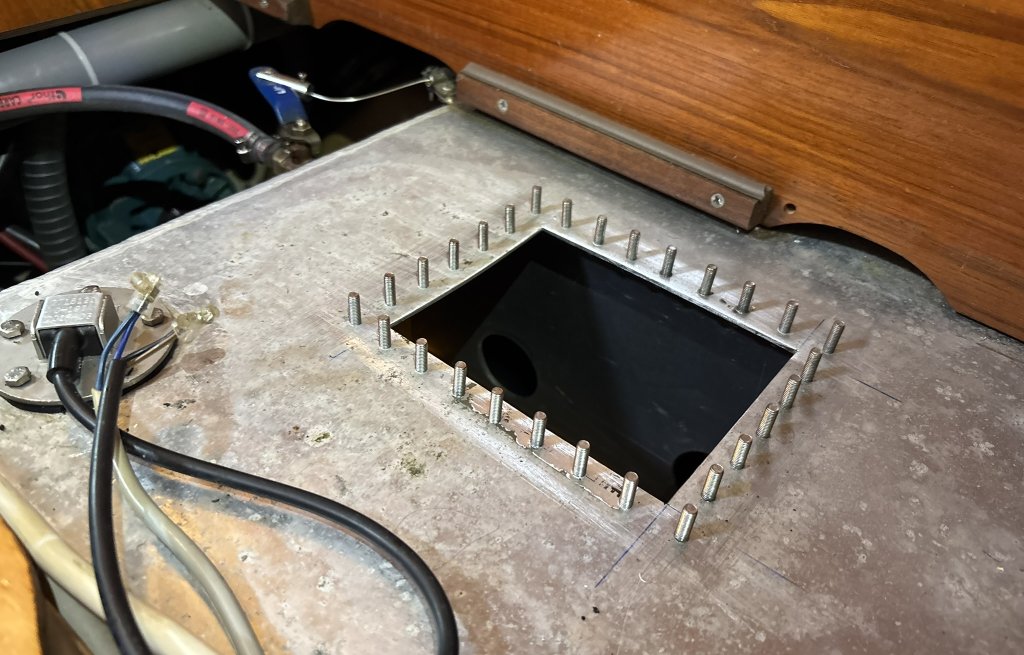
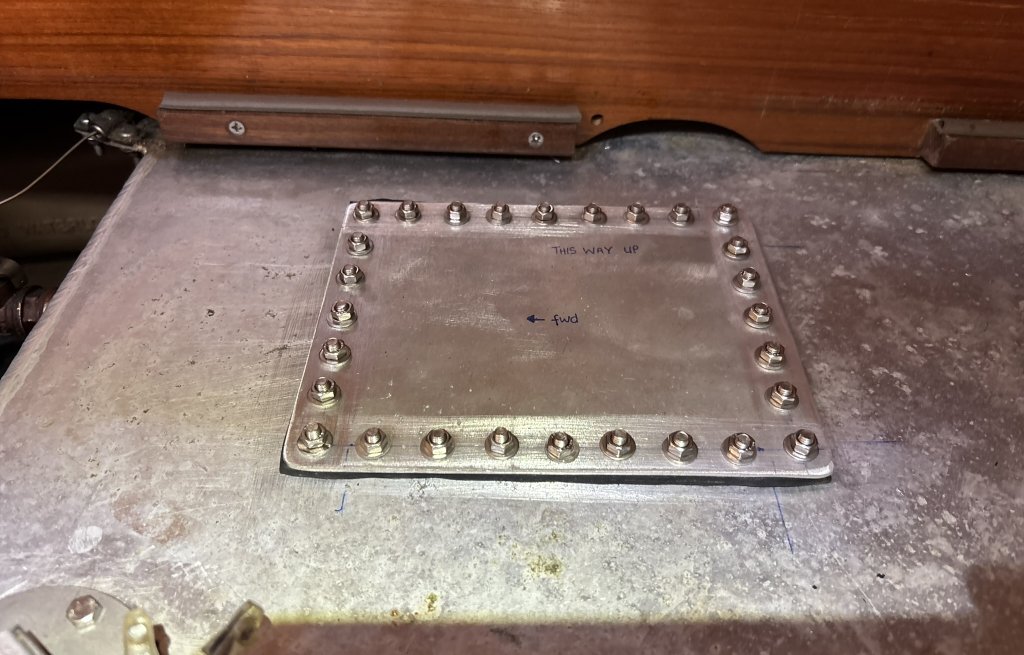
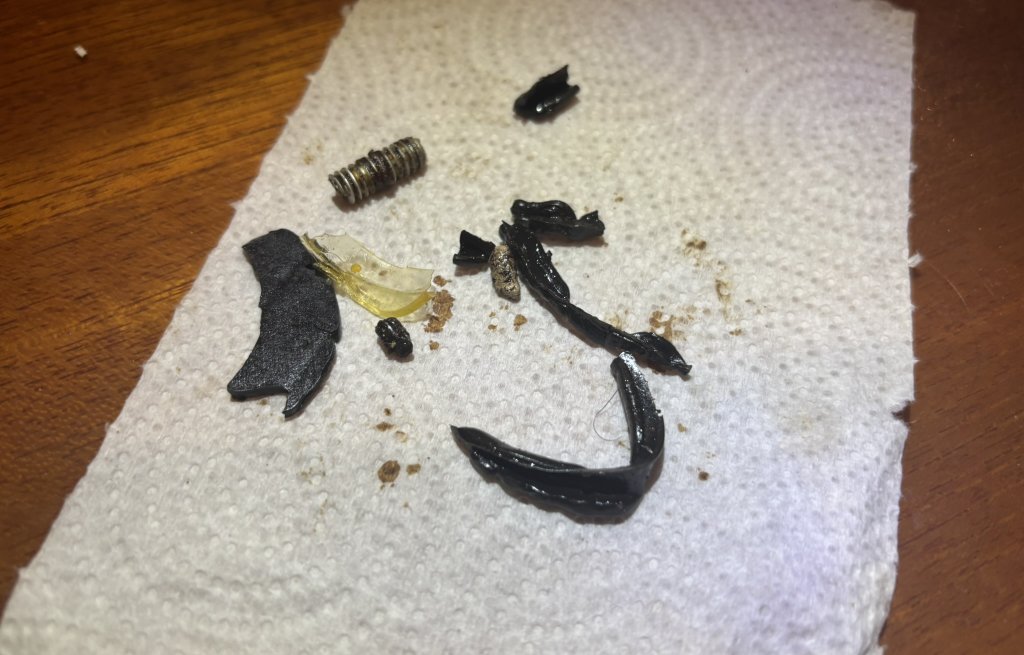
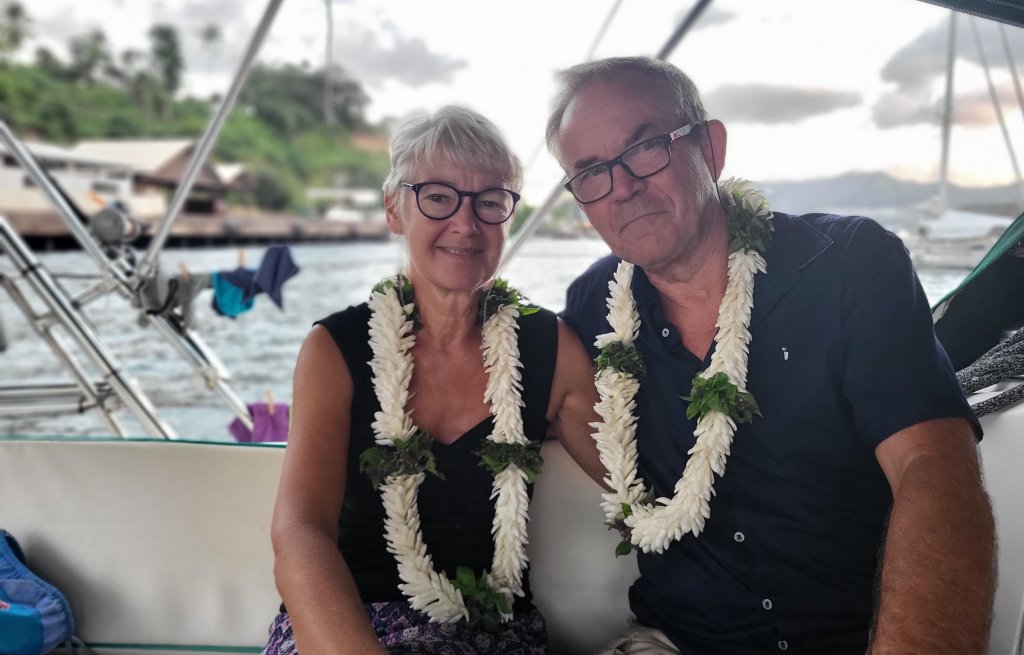
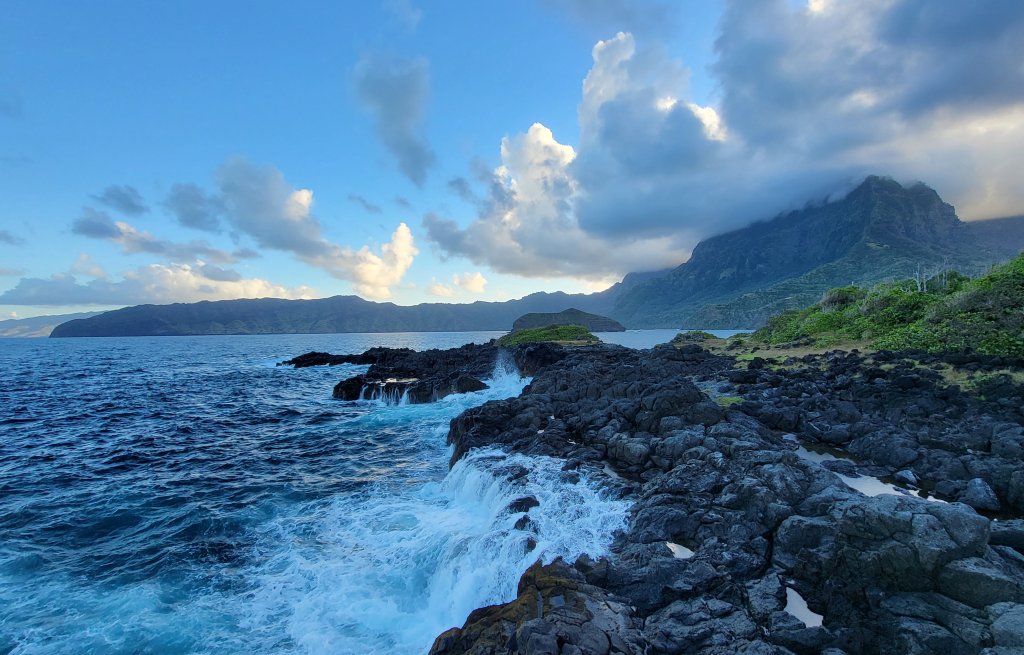
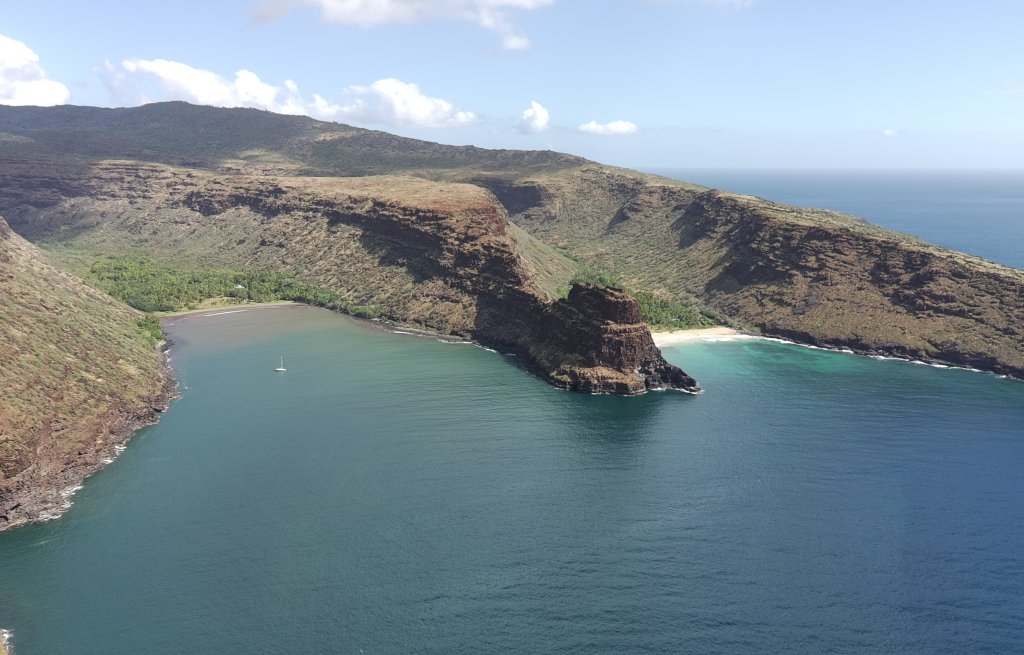
What happened with the tsunami, what lies behind the tattoos of the Marquesans and which wild animals visit us while camping on the Poumaka?
You'll find out soon!